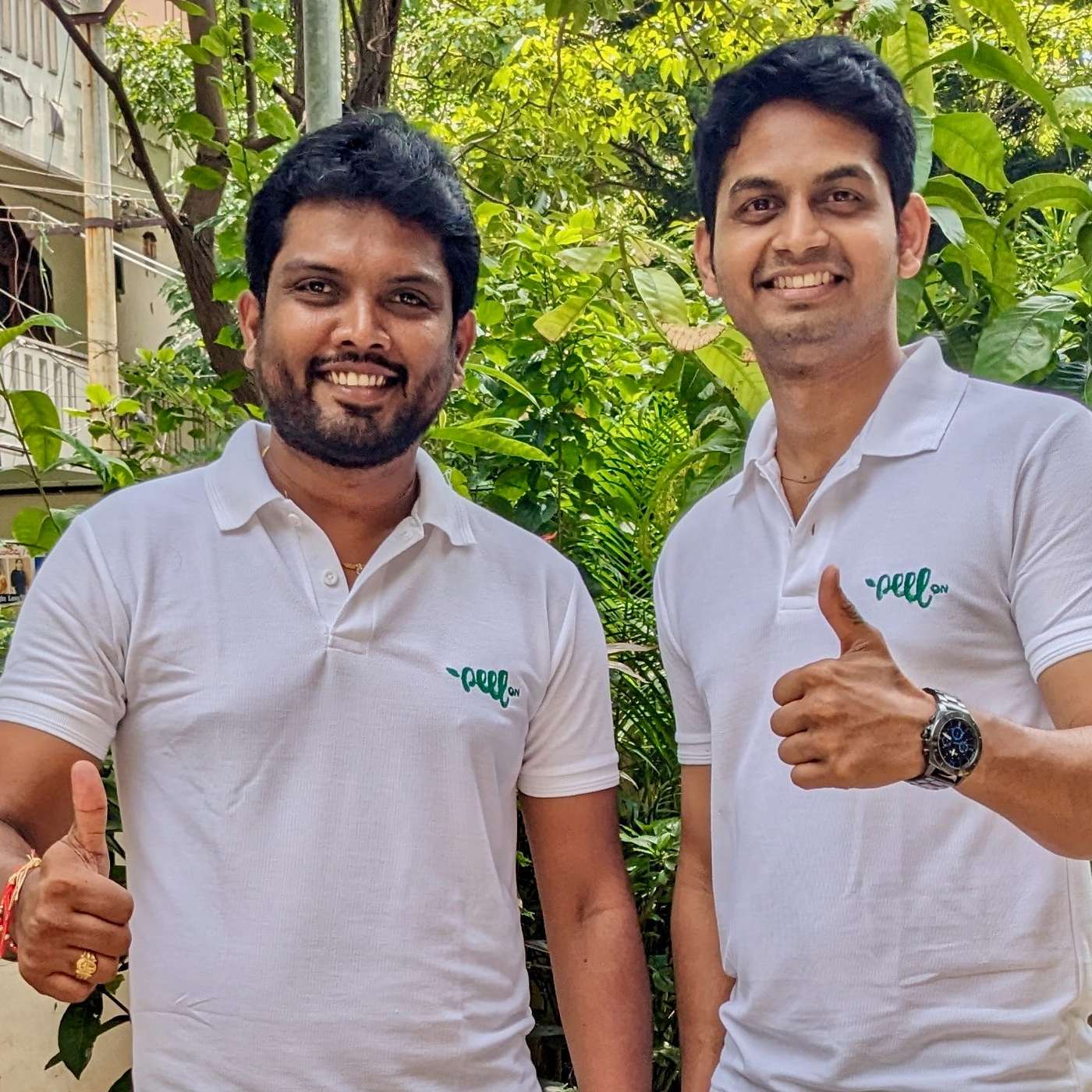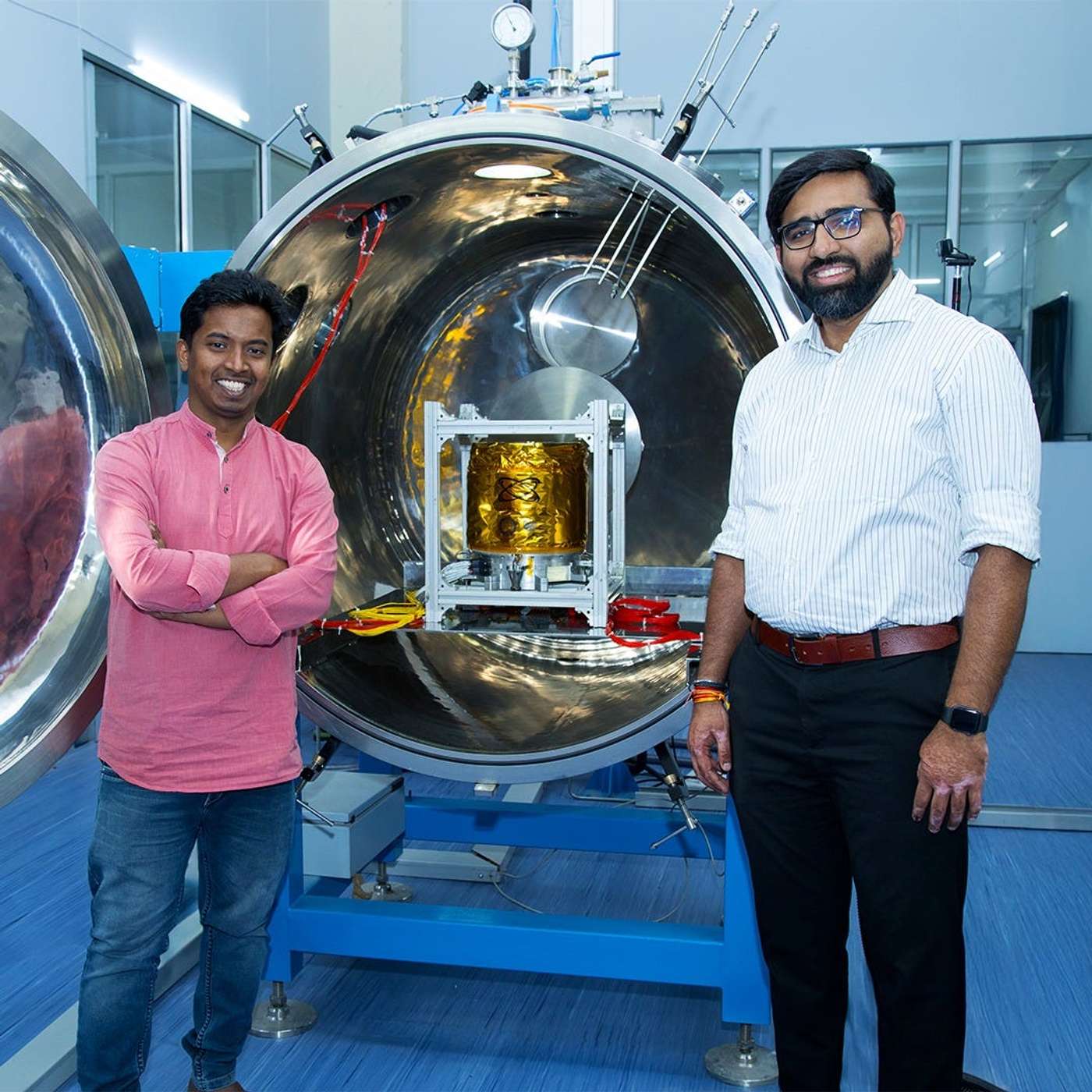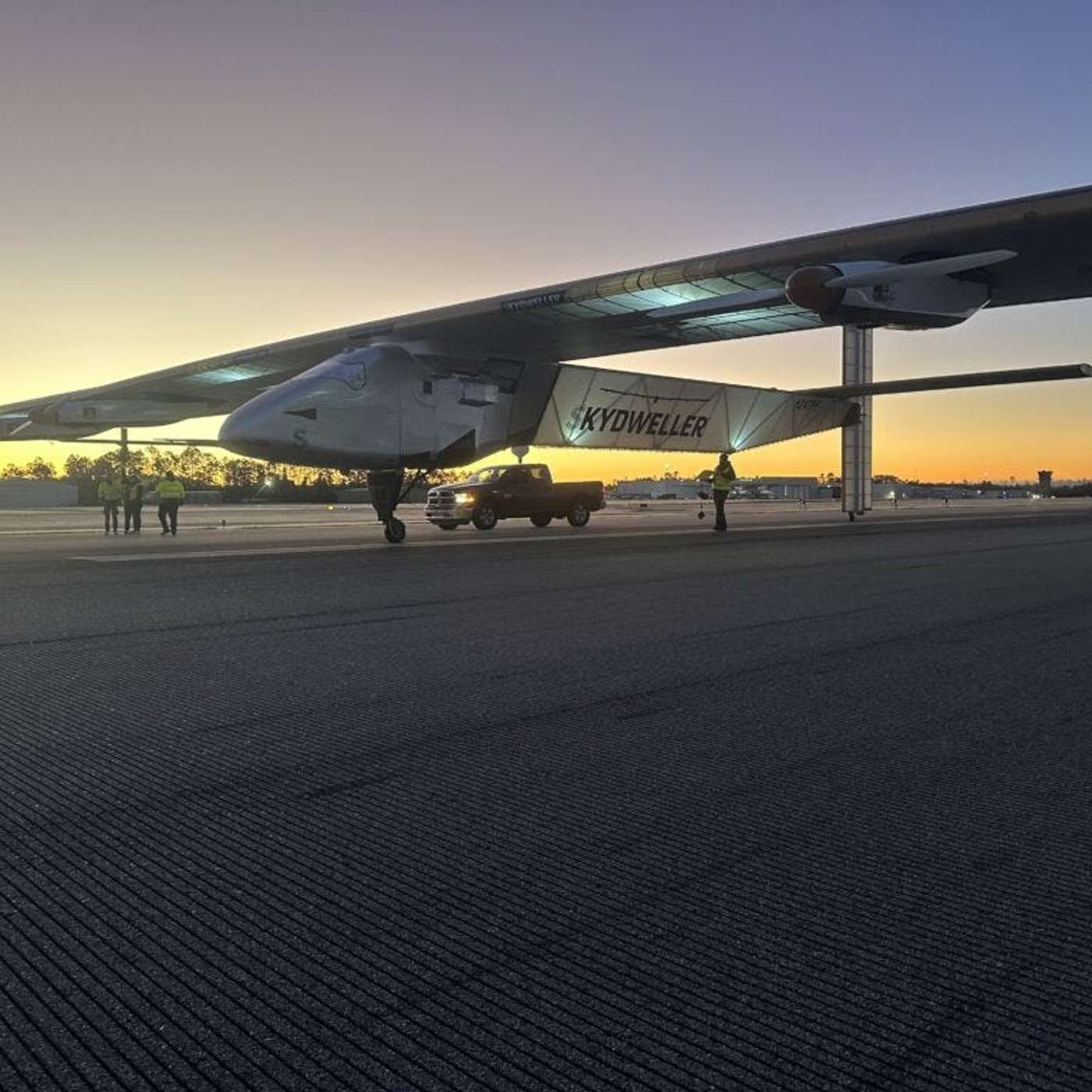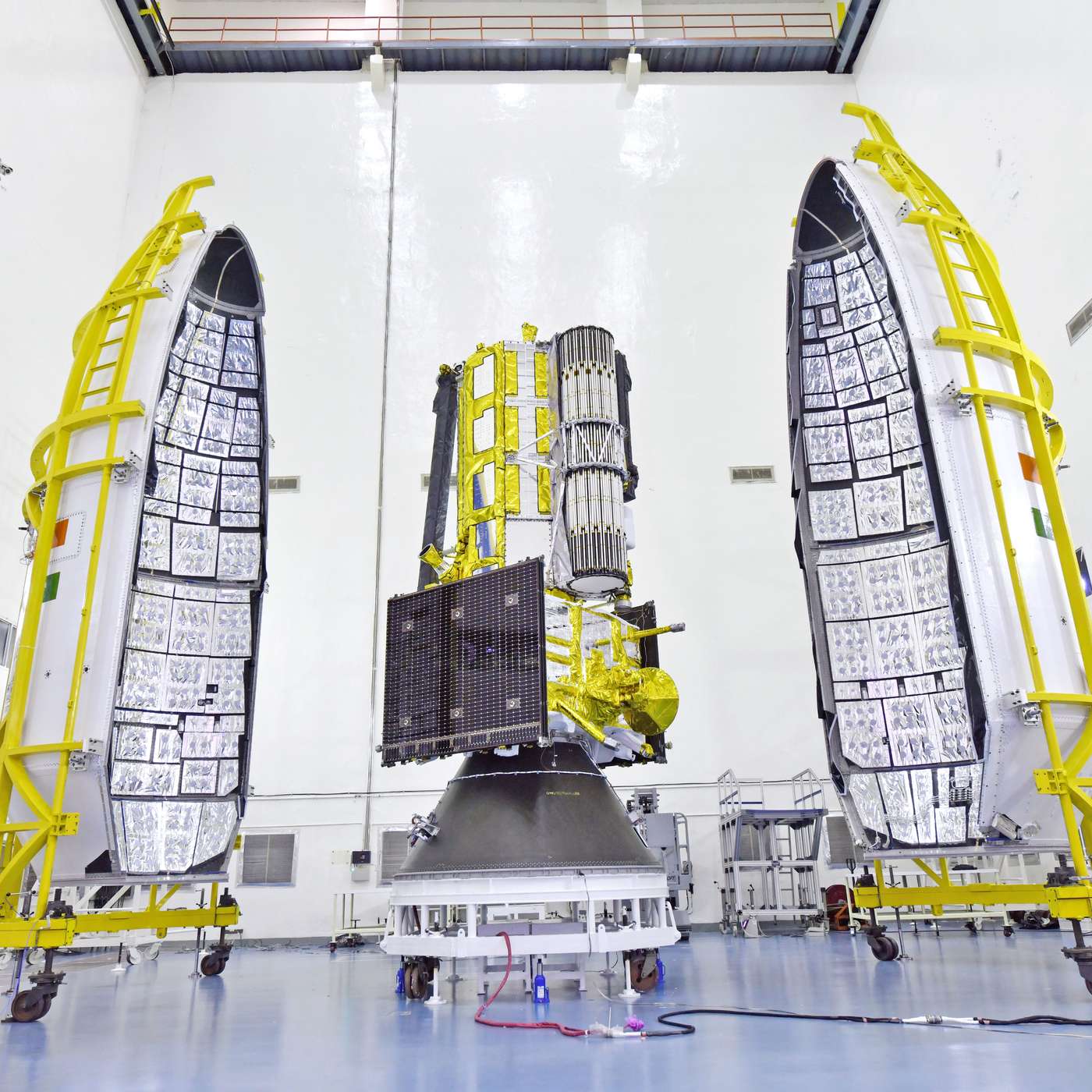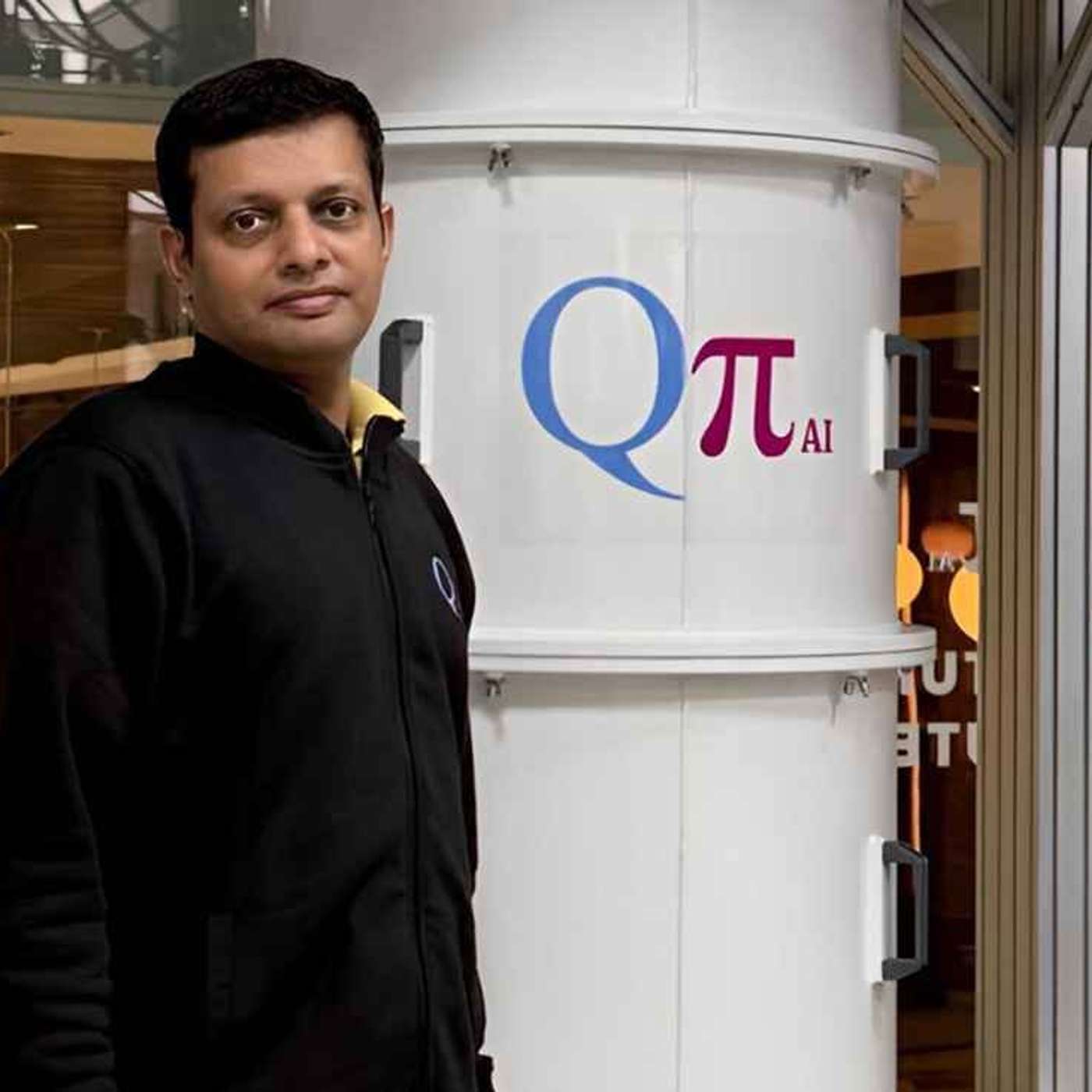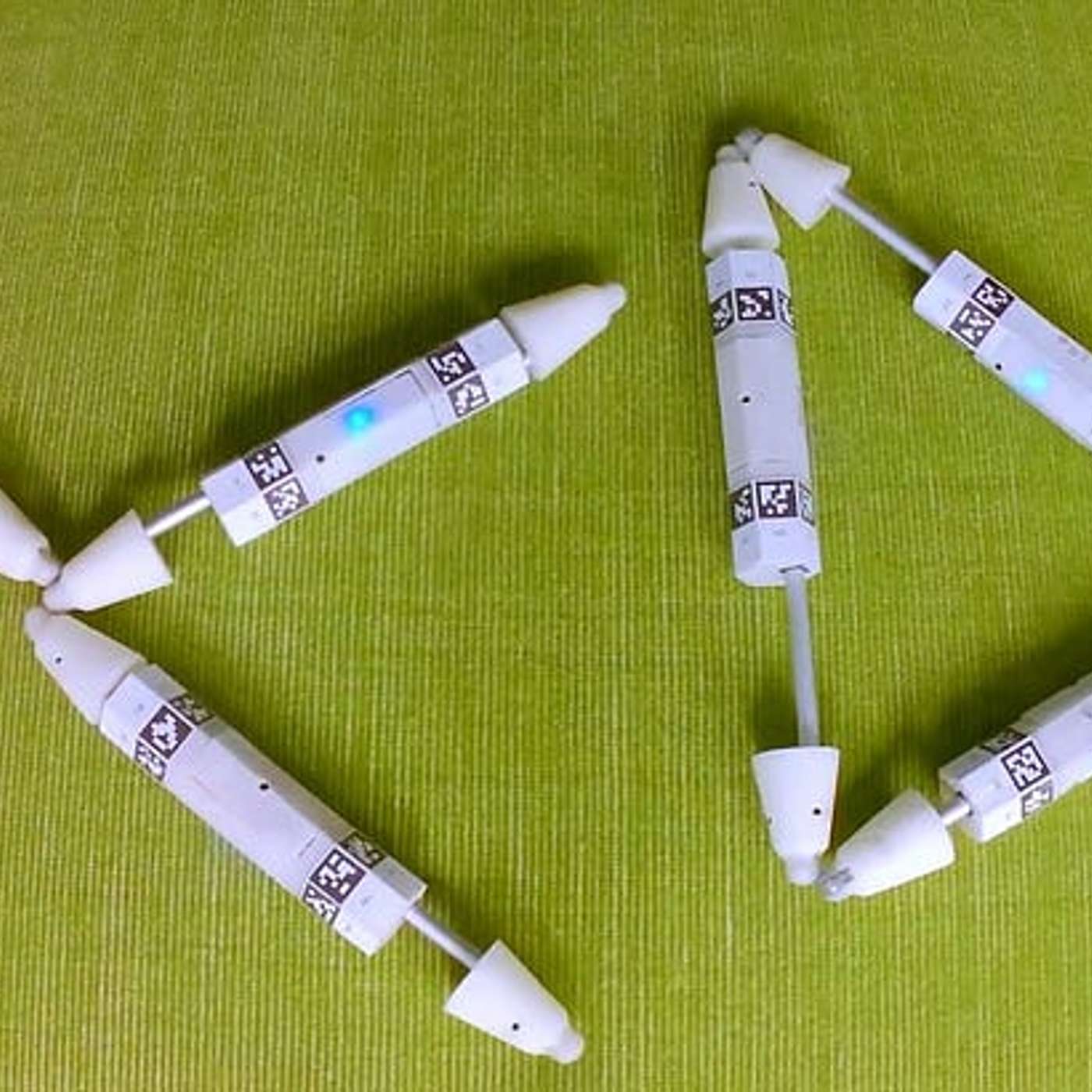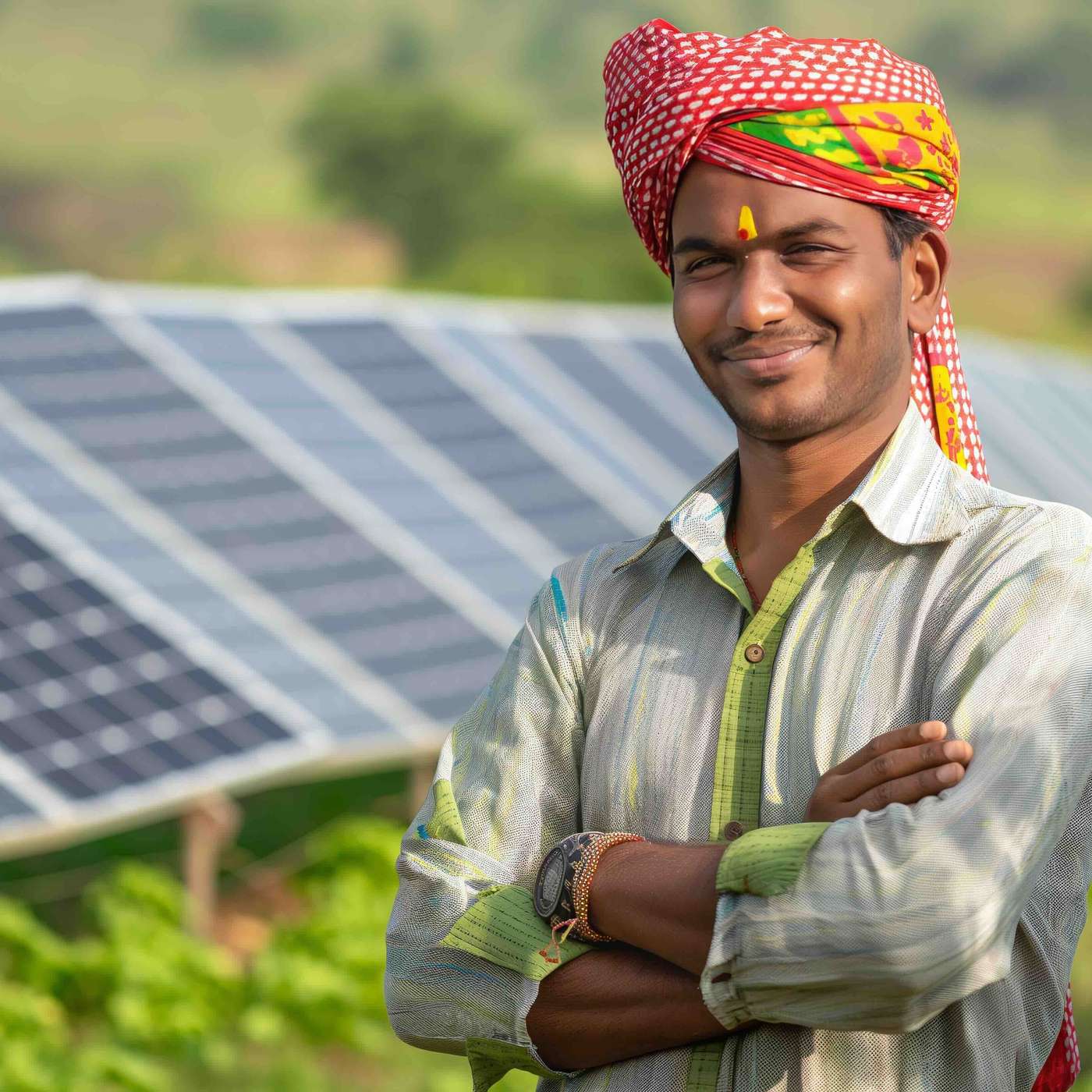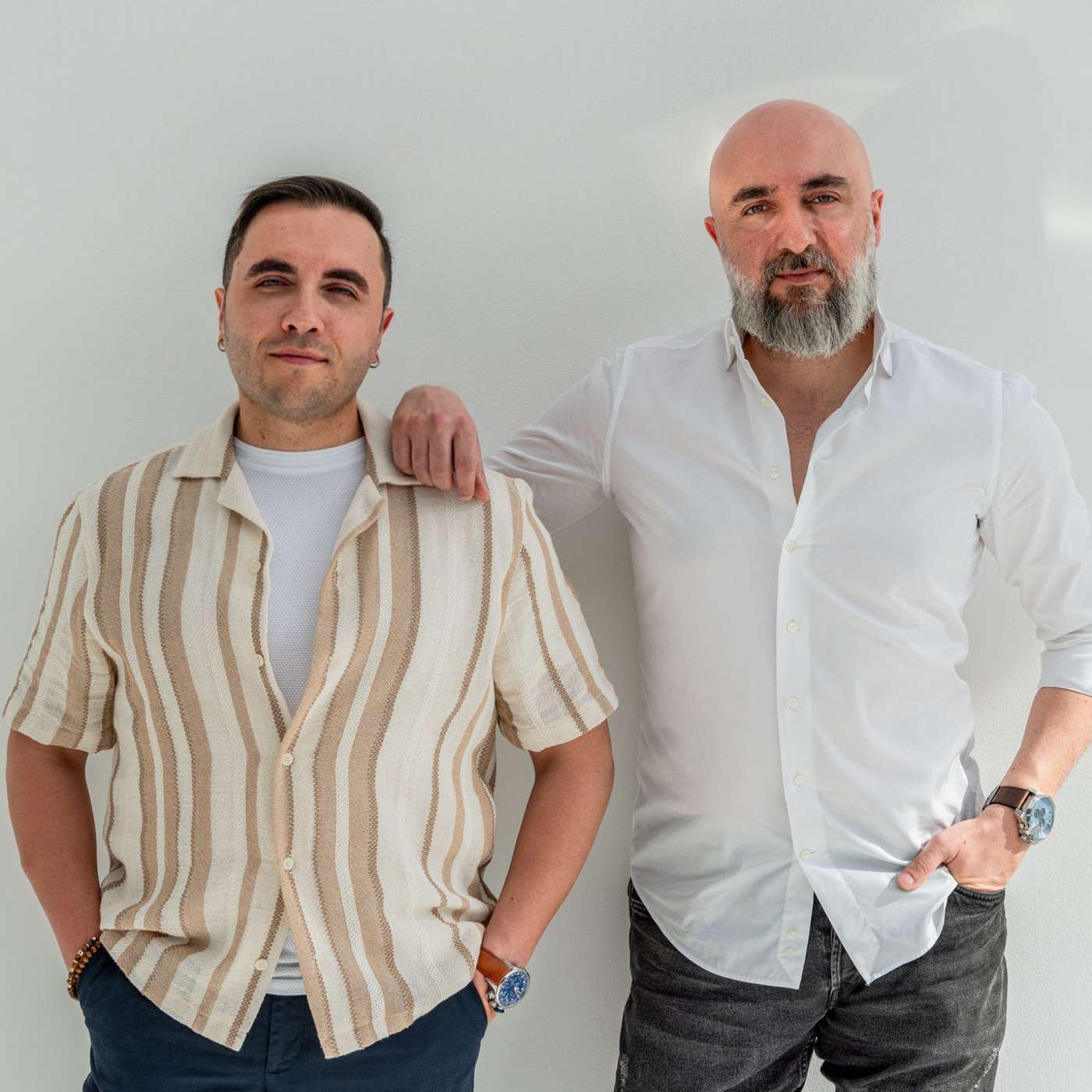Discover India Tech Report: Daily Morning Brief
India Tech Report: Daily Morning Brief

India Tech Report: Daily Morning Brief
Author: Hari Arakali
Subscribed: 1Played: 1Subscribe
Share
© Hari Arakali
Description
Daily brief on deep tech and climate tech news from India and around the world, every week day.
hariarakali.substack.com
hariarakali.substack.com
43 Episodes
Reverse
TDK’s new Haryana plant to manufacture 200 million lithium-ion batteries annuallyIndia’s Electronics and IT Minister Ashwini Vaishnaw inaugurated TDK Corporation’s advanced lithium-ion battery plant in Sohna, Haryana, under the Electronics Manufacturing Cluster Scheme, according to a government press release. The facility will produce about 20 crore battery packs per year — covering 40 percent of India's domestic demand for mobile devices, wearables, and laptops. The state-of-the-art factory is expected to generate 5,000 direct jobs and marks a major milestone for India’s self-reliance and electronics manufacturing ecosystem. Survey shows optimism amid challenges for India’s deeptech founders A joint survey by TDK Ventures and Kae Capital of nearly 100 Indian deeptech founders highlights optimism despite funding, talent, and infrastructure hurdles, the VC firms said in a press release. While 58 percent expressed confidence in raising their next round, challenges include skill shortages, high salary expectations, and limited lab access. Sectors like energy tech, robotics, semiconductors, and quantum are poised for growth, with supportive policies slowly improving the ecosystem. Nvidia invests in Quantinuum, valuing quantum venture at $10 billionHoneywell’s quantum computing company, Quantinuum, has raised approximately $600 million in a funding round led by Nvidia’s venture capital arm and other investors, pushing Quantinuum’s valuation to $10 billion, the company said in a press release. The funds will accelerate development of scalable quantum systems, with Quantinuum aiming for breakthroughs in fault-tolerant quantum computing and enhanced classical AI capabilities. The investor lineup includes JPMorganChase, Mitsui, Amgen, and Cambridge Quantum Holdings. IBM and AMD team up for quantum-centric supercomputing architectureIBM and AMD have announced a partnership to develop quantum-centric supercomputing platforms that combine IBM’s quantum computers with AMD’s high-performance CPUs, GPUs, and FPGAs, the companies said in a press release. The aim is to build scalable, open-source systems where quantum and classical computing work together to tackle problems that neither can solve alone—such as simulating atoms with quantum chips while using classical supercomputers for data analysis. An initial demonstration of hybrid quantum-classical workflows is planned for later this year. QuantrolOx and C-DAC sign agreement to co-develop quantum computing technologiesFinland-based QuantrolOx and India’s Centre for Development of Advanced Computing (C-DAC) have signed a Letter of Intent to jointly develop quantum computing technologies for India’s research ecosystem, according to a press release. Their collaboration aims to create an indigenous quantum software stack and enhance automated tuning and characterization tools for quantum processors. The strategic partnership will support national labs and academics, advancing C-DAC’s Hybrid HPC-Quantum Mission and semiconductor design initiative. Ultimately, it seeks to accelerate R&D timelines and strengthen India’s quantum hardware and software leadership. Maybell Quantum raises $40M Series B to accelerate quantum infrastructure launchMaybell Quantum has secured $40 million in Series B funding led by Addition, with participation from existing investors, to help accelerate the commercialization of its next-generation quantum infrastructure, Quantum Insider reports. The funding will support development and go-to-market efforts aimed at deploying advanced quantum hardware for scalable applications. Maybell Quantum’s solutions target key bottlenecks in quantum computing, aiming to make the technology more robust, accessible, and commercially viable. GE Aerospace invests $300M in Beta Technologies for hybrid-electric aviation push GE Aerospace is investing $300 million in Beta Technologies and partnering to develop a hybrid-electric turbogenerator for next-generation aircraft, TechCrunch reports. The deal will leverage GE’s jet engine expertise and Beta’s electric propulsion know-how, promising enhanced range and payload. If approved, GE can appoint a director to Beta’s board; Beta’s total funding will rise to $1.45 billion. RoboBallet system lets robotic arms work in harmony on factory floorsResearchers at UCL, Google DeepMind, and Intrinsic have developed RoboBallet, a graph-neural-network-powered AI system that enables robotic arms to coordinate precisely and efficiently, even in complex factories, Tech Xplore reports. Using reinforcement learning, RoboBallet can plan tasks for up to eight arms solving 40 simultaneous operations, hundreds of times faster than real-time and far beyond prior approaches. The breakthrough allows manufacturers to automate multi-robot layouts, adapt instantly to changes, and boost throughput, making choreographed robotic collaboration a practical reality. CynLr and IISc join forces to bring neuroscience into robotics CynLr, a robotics startup in Bengaluru, has partnered with the Indian Institute of Science (IISc) to decode how biological vision can power real-world robotics, the company said in a press release. The initiative, ‘Visual Neuroscience for Cybernetics’, will translate neural insights on depth, motion, and memory into adaptive robotic vision systems. Joint research, doctoral projects, and algorithm development will underpin this effort, advancing CynLr’s vision of generalized manipulation and Universal Factories. C-CAMP and UK fund launch new call for AMR environment solutions The centre for cellular and molecular platforms C-CAMP and the UK’s GAMRIF, which is the global anti-microbial resistance innovation fund, have announced a new call for research offering up to £170,000 per startup for innovations tackling antimicrobial resistance (AMR) in environmental settings. The 2025-26 initiative targets detection, prevention, and treatment technologies, focusing on scalable solutions for low- and middle-income countries. Selected innovators will receive funding, mentoring, and field validation to accelerate AMR-fighting technologies. Ashoka University and ESET award woman in cybersecurity scholarship Ashoka University and ESET, a Slovakian cybersecurity ...
Indian cabinet approves Rs.1,500 crore plan for mineral recyclingIndia’s Union Cabinet has cleared a six-year, Rs.1,500 crore incentive plan under the National Critical Mineral Mission to boost recycling of battery waste and e-waste for extracting critical minerals, according to a press release on the PM India website. The policy targets both large and small recyclers, offering capital and operational subsidies and aims to create 270 kT recycling capacity, 40 kT mineral output, Rs. 8,000 crore investment, and 70,000 jobs. The plan is expected to strengthen supply chain resilience. EIC Scaling Club members raise over €1.2 billion in fundingThe European Innovation Council’s EIC Scaling Club has helped 120 European deep tech scaleups collectively raise over €1.2 billion, supporting growth across sectors such as computing, renewable energy, and smart mobility, Tech.eu reports. Notable deals include €256 million for Multiverse Computing and significant rounds for Axelera AI and Aerones. The programme facilitates investor networking and marks a milestone for Europe’s deep tech, with further events scheduled into 2026. IQM Quantum Computers raises over $300 million Series BIQM Quantum Computers secured more than $300 million in a Series B funding round led by US-based Ten Eleven Ventures, with notable support from Finnish investor Tesi, Quantum Insider reports. This investment aims to accelerate IQM's global expansion and quantum technology development. The round marks one of Europe’s largest quantum investments, signaling heightened growth and innovation within the continent’s quantum computing ecosystem. Sierra nears $350 million funding round, valued at $10 billionAI agent startup Sierra is close to securing $350 million in financing, pushing its valuation to $10 billion just two years after launch, Axios reports. Sierra, co-founded by Bret Taylor and Clay Bavor, creates custom enterprise customer service AI agents and is expected to surpass $100 million in annual recurring revenue. The investment round, led by Greenoaks Capital, highlights continued strong demand for specialized AI solutions in the business sector. ETH Zurich students build faster multi-metal 3D printerA team of ETH Zurich students developed a patented rotary laser powder bed fusion machine able to print with two metals simultaneously, Tech Xplore reports. The system significantly reduces waste and manufacturing time for cylindrical components by using a rotating tool path and synchronized gas flow. It aims to benefit aerospace, e-mobility, and other industries, with potential applications in rocket nozzles and turbines. ETH is seeking further industrial collaboration. Ujjwal Kumar steps down from Teradyne Robotics presidencyUjjwal Kumar has departed his role as president of Teradyne Robotics, known for expanding the portfolios of Universal Robots and Mobile Industrial Robots, championing physical AI and automation, according to The Robot Report. Teradyne faced revenue declines and layoffs in 2025, prompting strategic and leadership changes. Jean-Pierre Hathout, former UR and MiR executive, succeeds Kumar, combining his extensive international experience to lead the company in a rapidly evolving robotics sector. British Business Bank recruits CVC experts for deep tech investmentsThe British Business Bank has hired Rachael Reid and Costantino Mariella, former corporate venture capital investors from BP Ventures and Sony Innovation Fund, to strengthen its deep tech investment strategy, Global Venturing reports. These new senior investment managers will support direct and co-investment activities. The bank has invested over £1.1bn in UK startups, focusing on life sciences, advanced materials, and future computing technologies. Earth’s carbon storage could run out as early as 2200A new study reveals Earth's underground rock formations may only safely store around 1,460 gigatonnes of CO₂, far less than once believed, the journal Nature reports. At current rates, capacity could be exhausted by 2200, risking efforts to meet Paris climate targets. Achieving necessary scale would require a 175-fold increase in annual storage, with challenges in safe, practical deployment and environmental risks from potential leakage. The study was led by scientists at the International Institute for Applied Systems Analysis in Laxenburg, Austria.For in-depth conversations with founders, investors, industry leaders and other stakeholders building India’s deep tech and climate tech ecosystems, please listen to my India Tech Report: In Conversation podcast. To support my work, please subscribe to my posts at India Tech Report, if you’d like to get all these in one place.
First Made-in-India chips as semiconductor mission acceleratesPrime Minister Narendra Modi received India’s first homegrown semiconductor chips at the opening of the Semicon India 2025 conference in New Delhi yesterday, marking rapid progress in the nation’s semiconductor mission, according to a government press release. Multiple MoUs were signed at the meet to boost manufacturing, skills, and innovation, according to the release. The government’s push includes talent development, global partnerships, and deep tech investment, positioning India as a future global leader in semiconductors. US and Indian VCs unite for $1 billion deep tech alliance in IndiaEight leading venture firms from the US and India have launched a $1 billion alliance to support India’s deep tech startups, pledging long-term capital and mentorship, according to multiple reports. The coalition will work with the Indian government to leverage new incentives, boost innovation, and strengthen cross-border tech ties despite ongoing geopolitical tensions. Called the India Deep Tech Investment Alliance, the group brings together Celesta Capital, Accel, Blume Ventures, Gaja Capital, Ideaspring Capital, Premji Invest, Tenacity Ventures, and Venture Catalysts, TechCrunch reports, citing a joint statement from the firms. Each member will commit private capital over a 5-10-year period to India-domiciled deep tech startups, according to TechCrunch. WisdomTree debuts quantum ETF as sector nears viability WisdomTree, a New York based global asset manager, has launched a Quantum Computing UCITS ETF as quantum information processing approaches commercial viability. The ETF allows investors broad access to quantum hardware and software leaders, focusing on sectors like drug discovery, climate science, and AI. WisdomTree asserts that with exponential advances in quantum mechanics, the fund enables early participation in what may soon be one of the most transformative technological frontiers. Quantum computer modules snap together like LEGOs for scalable, high-fidelity systemsUniversity of Illinois scientists have created a modular quantum processor—devices connect via superconducting cables and achieve ~99 percent operation fidelity, SciTech Daily reports. This architecture enables scalability, easier upgrades, and reconfigurability, overcoming limits of monolithic designs and paving the way for larger, fault-tolerant quantum computers and advanced quantum networks. AI-driven drug discovery accelerates as FDA aims to cut animal testingPharmaceutical companies are rapidly adopting AI for drug discovery and safety testing, aligning with the US FDA’s initiative to reduce animal testing, Reuters reports. Experts say combining AI and reduced animal testing could halve both costs and timelines within three to five years, though animal studies will likely remain necessary for some drugs in the near term. MIT develops self-assembling material to enable easily recyclable EV batteriesMIT researchers have created a battery electrolyte that self-assembles and quickly dissolves in common organic liquids, allowing entire batteries to be taken apart for recycling, according to a news post on the institute’s website. Tested in solid-state cells, the material simplifies sorting of battery components and could make recycling easier and cleaner, addressing future electronic waste from the rise of electric vehicles.Musk predicts Optimus humanoid will drive 80 percent of Tesla’s valueElon Musk recently stated that Tesla’s future value will depend far more on its Optimus humanoid robots than on its electric cars, predicting that up to 80 percent of Tesla’s worth will derive from Optimus, CNBC reports. The company’s new strategy focuses on robotics and AI, with plans to produce 5,000 Optimus units in 2025 and target a $20,000–$30,000 price point. Musk envisions Optimus becoming core to Tesla’s operations and the global robotics market, despite continuing technical and adoption challenges.Sixty percent of Earth’s land is now outside safe biosphere limitsA new study finds that 60 percent of the world’s land is beyond safe biosphere boundaries due to expanding human use of biomass, SciTech Daily reports. The research tracks changes since 1600, showing Europe, Asia, and North America are most affected. Scientists urge global action as ecological disruption, land conversion, and declining photosynthetic activity raise risks for planetary stability. For in-depth conversations with founders, investors, industry leaders and other stakeholders building India’s deep tech and climate tech ecosystems, please listen to my India Tech Report: In Conversation podcast. To support my work, please subscribe to my posts at India Tech Report, if you’d like to get all these in one place.
OpenAI to build multi-gigawatt AI data center in India, expanding local footprintOpenAI is planning to set up a major data center in India with at least 1 gigawatt capacity, supported by local partnerships and backed by Microsoft, Reuters reports. The company has registered as a legal entity in India, established a local team, and will open its first office in New Delhi this year to strengthen its presence in its second-largest market. The project marks a significant move for OpenAI’s Stargate-branded AI infrastructure expansion in Asia, with further details likely during CEO Sam Altman’s September visit. Reliance launches AI subsidiary to power India's deep tech futureReliance Industries has launched a wholly owned subsidiary, Reliance Intelligence, to advance India's AI capabilities and make the country a global hub for deep tech, The Hindu reports. The new company will focus on gigawatt-scale, green energy-powered AI data centers, forge global tech partnerships, build wide-reaching AI services for major sectors, and nurture talent. Strategic alliances with Google and Meta will enable scalable, affordable AI solutions for Indian consumers and businesses. Lizy raises €75m to scale circular EV leasing for European firmsLizy, a Brussels-based car leasing company, raised €75 million to expand its circular electric vehicle leasing model across Europe, Tech Funding News reports. By championing used EV leasing, Lizy offers small businesses affordable, sustainable mobility solutions, unlike the traditional “one and done” car contracts. The investment, combining capital and debt, will allow Lizy to scale up and accelerate the transition to electric fleets for companies, enhancing both environmental impact and growth. Runway targets robotics sector with AI-powered training simulationsRunway, known for its video-generating AI, is expanding into robotics by leveraging its world models for training simulations, making robot and self-driving car development faster and more cost-effective, TechCrunch reports. Companies can use its models to test specific scenarios and actions in a virtual environment, improving scalability and precision over real-world tests. Runway will fine-tune its existing models for industry needs, backed by over $500 million in funding. Gene variant pairs act as switches to unlock hidden disease pathwaysResearchers at IIT Madras and Denmark found that interactions between specific genetic variants can act as "switches" to unlock hidden metabolic pathways, increasing understanding of complex diseases, according to a post on the institute’s website. Their yeast study, using multi-omics and time-based analysis, showed certain variant pairs rewire cellular networks and activate previously silent functions. This approach could guide new personalized therapies, biomarkers, and drug targets for conditions such as cancer, diabetes, and neurodegeneration. Styrofoam upcycling enables safe, efficient hydrogen storage solutionResearchers led by a team at Ulsan National Institute of Science and Technology, South Korea, have developed a process to convert waste Styrofoam into a safe, reusable hydrogen storage medium using liquid organic hydrogen carriers (LOHCs), Tech Xplore reports. The method utilizes polystyrene’s aromatic structure for hydrogen storage and retrieval, with ruthenium and platinum catalysts enabling efficient absorption and release. Innovations include improved catalyst durability and the use of waste heat, solving both hydrogen storage and plastic recycling challenges for future industrial adoption. Norma validates quantum AI algorithms on NVIDIA GPUs for scalable useNorma, a venture in South Korea, has completed validation of its quantum AI algorithms on NVIDIA hardware, demonstrating robust performance and compatibility for high-impact applications, Quantum Insider reports. This achievement marks a significant milestone in bridging quantum computing with advanced AI, enabling scalable solutions in areas like optimization and materials science. The testing confirms that Norma’s quantum AI stack integrates smoothly with industry-standard GPUs, paving the way for commercial deployments and future research. 6G wireless promises ultra-fast, AI-powered connectivity for advanced applications6G wireless technology will offer ultra-high data rates, near-zero latency, and large-scale connectivity, integrating sensing and AI-driven operations for advanced applications beyond traditional communication, IEEE Spectrum reports. It will support scenarios requiring precise positioning, critical low-latency vehicular communications, and highly adaptive resource management in dense, heterogeneous environments. Innovations like terahertz spectrum, smart antennas, full duplex, and meta-surfaces are key features, making 6G transformative for industries and society. For in-depth conversations with founders, investors, industry leaders and other stakeholders building India’s deep tech and climate tech ecosystems, please listen to my India Tech Report: In Conversation podcast. To support my work, please subscribe to my free newsletter India Tech Report, if you’d like to get all these in one place.
IN-SPACe signs five ISRO tech transfer deals with Indian firmsIN-SPACe has facilitated the transfer of five ISRO-developed technologies to Indian industry, with tripartite agreements signed in Ahmedabad between IN-SPACe, NSIL, and the recipient companies, according to a press release. The ISRO-developed technologies are expected to boost self-reliance and reduce imports in biomedical, solar, and manufacturing sectors. Notable transfers include LTCC multi-chip modules and adhesives for solar panels. IN-SPACe, which was founded by Government of India five years ago to support private space sector in the country, has now executed 98 transfer agreements, driving industrial innovation and indigenization. ideaForge SWITCH UAV receives DGCA nod for broad deploymentideaForge Technology’s SWITCH UAV has received DGCA Type Certification, needed for deployment in civil, paramilitary, and enterprise sectors, the company said in a press release. SWITCH offers military-grade performance with VTOL, long endurance, and high payload for tactical and industrial missions like border surveillance and infrastructure monitoring. The certification affirms SWITCH’s reliability and safety, supporting expanded use across critical applications and reinforcing ideaForge’s leadership in advanced aerial intelligence. AI to unlock $500 billion opportunity for India’s tech servicesNasscom has released a new report, tapping the consultancy McKinsey as its knowledge partner, highlighting India’s technology services sector’s shift from pandemic-fueled digital growth to AI-driven transformation, India’s biggest tech lobby said in a press release. Between 2020–2025, structural changes accelerated, with enterprise budgets now focusing on AI for productivity. The report forecasts muted near-term growth but robust 12–15 percent expansion in data and AI segments. Agentic AI could add $300–500 billion in new spending as hybrid human-AI models reshape delivery, requiring mass reskilling. EKA Mobility, Shriram Green Finance sign MoU to boost EVsEKA Mobility, an electric commercial vehicles company in Pune, has signed an MoU with Shriram Green Finance to offer flexible, affordable financing, aiming to accelerate India’s clean transport shift, the company said in a press release. The partnership will help with EV adoption for fleet operators, dealers, and small businesses through loans for EKA’s range of buses, trucks, LCVs, and three-wheelers, reducing financial barriers for zero-emission fleets. Sixteen startups, six student teams win big at C-CAMP NBEC 2025The eighth edition of the National Bio Entrepreneurship Competition 2025 concluded in Bengaluru, Saturday last week, with 16 startups and six student teams winning close to ₹40 crore in cash prizes and investments. NBEC, organized every year the Centre for Cellular and Molecular Platforms, C-CAMP, in Bengaluru, supported by the Government of Karnataka, drew 3100 entries nationwide, spotlighting promising biotech innovation from smaller cities. Winners will receive mentorship and support to scale their solutions, which address challenges in diagnostics, drug discovery, water, sanitation, and agriculture. Among the winnersimmunitoAI Pvt Ltd: Uses AI to develop novel single-domain antibody drugs for autoimmune diseases and cancer, improving therapeutic options for previously hard-to-treat conditions.Contrivation Labs Pvt Ltd: Automates post-harvest separation of red chilli stems, boosting agricultural productivity and efficiency.Nexus Power: Creates biodegradable batteries from crop residue for mobility and stationary uses, offering a greener solution for energy storage.IIOT Innovation Pvt Ltd: Converts industrial carbon emissions into valuable biochemicals using microalgae biorefinery, supporting both sustainability and circular economy goals. Student teams included those from institutes such as IIT Kanpur and ICGEB. Among the innovations they’re developing are bone fillers for orthopaedics, rapid pathogen detection kits, and yeast formulations to enhance ethanol production. About C-CAMP NBECSince 2017, C-CAMP NBEC has catalyzed over 110 young entrepreneurs, nurturing deep science startups with commercial potential, and is backed by top government bodies and global partners. C-CAMP itself is a leading biosciences innovation hub in India, incubating 550+ startups and driving translational research for healthcare, agriculture, and environmental impact.Also listen to:https://indiatechreport.in/in-conversation/
C-CAMP announces date for bio entrepreneurship competition finaleC-CAMP, with support from the Government of Karnataka, will host the grand finale of the National Bio Entrepreneurship Competition (NBEC 2025) on August 23 at Hotel LaLit Ashok, Bengaluru. The event will see participation by IT Minister Priyank Kharge and Biocon Chairperson Dr. Kiran Mazumdar-Shaw.This is the eighth season of the NBEC. This year, winners stand to gain nearly Rs. 40 crore in prizes and investments, chosen from 3100+ applications across 34 states and UTs.BEL, Centum team up on advanced indigenous defence electronicsBharat Electronics Limited (BEL) and Centum Electronics have inked an MoU to jointly develop and manufacture advanced electronic modules and systems for defence applications including electronic warfare, radar, and secure military communications.The collaboration aims to strengthen indigenous technology capability in critical domains, supporting national defence and strategic electronics.Ather Energy launches 2025 Ather 450X electric scooter in Sri LankaAther Energy, one of India’s leading electric two-wheeler makers, has launched the new 2025 Ather 450X model in Sri Lanka, expanding to 19 showrooms nationwide, the company said in a press release. The scooter features multi-mode traction control and advanced tyres for enhanced performance and range.Ather’s international growth now includes Nepal and Sri Lanka, with expanded EV infrastructure and a focus on building a reliable ownership ecosystem, the company says.ideaForge unveils Q6V2 GEO UAV for all-terrain, high-precision mappingideaForge Technology has announced the global launch of its Q6V2 GEO UAV, debuting a versatile mapping platform designed for extreme environments and diverse use cases, the company said in a press release. Offering more than 50 minutes of LiDAR-enabled flight and modular payloads — including AI-powered imaging and hyperspectral sensors—the Q6V2 GEO empowers industries, governments, and researchers with advanced geospatial intelligence and seamless cloud integration for actionable insights and 3D mapping.Setco Auto Systems and VNIT Nagpur sign MoU for automotive researchSetco Auto Systems, a subsidiary of Setco Automotive Ltd, has joined forces with VNIT Nagpur to drive joint research and innovation in automotive technology, according to a press release. The partnership will focus on developing next-generation clutch systems, electric mobility, and sustainable vehicle solutions, including establishing a Clutch Research Laboratory at VNIT.VNIT students will gain industry exposure through live projects and mentorship from Setco's R&D experts.mRNA cancer vaccine shows tumor-eliminating promise in miceUniversity of Florida researchers developed an experimental mRNA vaccine that, when paired with immunotherapy drugs in mice, eliminated resistant tumors, Science Daily reports. The vaccine stimulates the immune system broadly, rather than targeting a specific protein, showing potential as a universal cancer vaccine.The results build on previous clinical work and indicate this approach could sensitize immune responses across many cancer types, with human trials planned.Waterloo researchers create robots to dissolve kidney stones quicklyUniversity of Waterloo researchers have developed soft, flexible robots that use magnets and an enzyme to dissolve kidney stones directly in the urinary tract, according to The Robot Report. Tested in 3D-printed models, the strips deliver urease to reduce urine acidity, shrinking stones within days. This minimally invasive method could help patients who cannot tolerate drugs or surgery. Next steps include animal studies and refining the robotic system for precise, doctor-controlled targeting of stones.Hades Mining raises €5.5 million to launch ultra-deep drilling techMunich’s Hades Mining has raised €5.5 million in pre-seed funding led by Project A to develop cutting-edge drilling systems for ultra-deep geothermal energy and critical mineral deposits, EU Startups reports.Founded earlier this year, the startup aims to reduce Europe’s reliance on imports by unlocking extreme underground resources through proprietary, sustainable in-situ recovery technology. Funds will accelerate tech development and site preparation for mineral and energy extraction.growX back’s PeelON’s green packaging vision in $1 million fundingPeelON, a bio-tech startup in Vishakapatnam, has raised $1 million in seed funding led by growX Ventures, with participation from Boston Venture Group and Climate Angels, the company said in a press release.PeelON develops plant-based, compostable packaging that extends the shelf life of fruits and vegetables and is already commercially used in India and the US. The capital will fund expanded R&D and production, hiring, and certifications across markets.
ISRO deems Skyroot’s static test of KALAM 1200 solid motor a successSkyroot Aerospace successfully completed the first static test of its KALAM 1200 solid motor, the first stage of its Vikram-1 launch vehicle, at ISRO’s Sriharikota facility.The test marks a significant milestone, validating the 11m-long, 1.7m-diameter monolithic composite motor that carries 30t of propellant. With the motor created in line with India’s Space Policy 2023 to foster private sector growth, this achievement readies Vikram-1 for its maiden flight and boosts India’s space economy.NASA’s Lunar Trailblazer moon mission ends after spacecraft lost contact just one day post-launchNASA’s Lunar Trailblazer satellite, which lost contact just a day after its launch on Feb 26, was officially declared lost on July 31. The satellite was meant to map Lunar water. Initial data suggested that misoriented solar arrays caused battery depletion.Despite global efforts to reestablish communication, the craft spun slowly into deep space, making recovery impossible. The mission’s loss is a setback for low-cost lunar science, but its technologies may aid future attempts to study the Moon’s water.Optia and Patero unveil post-quantum-enabled GPU compute platformOptia and Patero, US startups both, have launched an industry-first GPU compute platform equipped with post-quantum encryption, designed for defense and edge applications, Quatum Insider reports.The platform integrates Patero’s CryptoQoR post-quantum cryptography with Optia’s high-performance compute hardware, ensuring protection for AI/ML, ISR (intelligence, surveillance, reconnaissance), and tactical edge workloads against both current and future quantum cyber threats.Stanford scientists advance knowhow that slows neurodegeneration, promising future therapies for Alzheimer’s and Parkinson’sStanford University researchers have developed a breakthrough technique to replace damaged brain immune cells (microglia) in mice, dramatically improving lifespan and motor function.By using a sequence of microglia depletion, targeted brain irradiation, and immune suppression, over 85 percent of brain microglia were successfully replaced by healthy donor cells, with treated mice living up to 250 days versus 135 for controls. The transplanted cells restored critical enzymes to neurons, offering hope for “off the shelf” therapies treating rare genetic disorders and more common neurodegenerative diseases.Alien meteorite mineral upends the rules of heat conduction with hybrid crystal-glass propertiesColumbia University scientists have discovered a rare mineral in a centuries-old meteorite that defies traditional heat conduction rules, exhibiting both crystal and glass traits, SciTechDaily reports.Uniquely, it maintains constant heat flow across temperature changes, unlike usual materials whose conductivity varies. AI and quantum physics confirmed its hybrid atomic structure and stable thermal properties between 80K and 380K. This discovery could advance heat management tech in electronics, steel production, and aerospace, potentially making processes more efficient and reducing carbon footprints in critical industries.Self-adaptive electrolytes could transform fast-charging, high-energy batteriesUniversity of Maryland researchers introduced self-adaptive electrolytes that expand their electrochemical stability window as batteries charge, overcoming the key trade-off between fast charging and high energy density, Tech Xplore reports.Inspired by phase equilibrium theory and the ‘salting-out’ effect, these ternary electrolytes sit at the cloud point and undergo localized phase separation in response to salt concentration gradients created during charging. Tested in zinc-metal and lithium-metal batteries, they achieved exceptional efficiency and improved stability, promising quicker, safer, and longer-lasting batteries for future electric vehicles and devices.Aira raises €150 million to commercialise clean heat pump technologyAira, a startup in Sweden, has raised €150 million in equity from existing backers including Altor, Kinnevik, Lingotto, and Temasek to scale up clean heating across Europe, Tech Funding News reports.The funds will help Aira expand production at its Polish factory, boost growth in Germany, Italy, and the UK, and invest in R&D for innovative heat pumps. With 130 million gas boilers still operating and heating accounting for 10 percent of Europe’s emissions, Aira’s high-efficiency heat pumps aim to replace gas systems, cut costs by 40 percent, and drive rapid decarbonisation.MIT spinout Strand Therapeutics raises $153 million to develop programmable mRNA therapiesStrand Therapeutics, founded by MIT grads Jake Becraft and Tasuku Kitada, has raised $153 million in Series B funding led by Kinnevik, bringing its total investments to $250 million and valuing the company at $550 million.The funding will advance their lead candidate, STX-001, a programmable mRNA therapy, engineered to express interleukin-12 in tumours, helping the immune system better target and attack cancer. Early Phase 1 results show strong safety and anti-tumour activity in treatment-resistant cases, promising to advance cancer therapy.Eyestem Research raises $10 million to advance clinical trials for eye disease therapyEyestem Research, in Bengaluru, has raised $10 million in Series B funding led by Raju Barwale and Alkem Laboratories’ Sandeep Singh, Entrackr reports. The funds will help Eyestem complete an ongoing Phase 2 clinical trial in India and support US FDA IND application preparations.Founded in 2015, Eyestem is developing Eyecyte-RPE, a therapy targeting geographic atrophy from dry age-related macular degeneration using retinal cells derived from stem cells. The company previously raised $9.95 million and competes with Lineage Cell Therapeutics and Voyager Therapeutics.Ultraviolette raises $21 million from Japan’s TDK to power global expansionUltraviolette Automotive, led by founders Narayan Subramaniam and Niraj Rajmohan, has raised $21 million in an all-equity round led by Japan’s TDK Corporation to step up international growth. The Bengaluru-based maker of the F77 sports electric motorcycle plans to quadruple its European reach, enter Latin America and Southeast Asia, and offer 14 models by early 2027, TechCrunch reports.Known for its tech-focused F77 electric motorcycle, Ultraviolette
Speciale Invest closes Fund III at Rs 600 crore to double down on deep tech in IndiaSpeciale Invest has closed its third fund at Rs 600 crore, exceeding the Chennai-based early-stage deep-tech VC firm’s initial target, according to multiple media reports. With Fund III, the VC firm will invest Rs 7-10 crore in 18-20 early-stage startups focused on AI, space tech, climate tech, quantum systems, advanced manufacturing, and dual-use strategic tech, with flexibility for larger cheques.The fund emphasises scaling ‘sovereign-edge’ technologies and globally competitive IP from India, with half set aside for follow-up investments. Ownership stakes are targeted to increase to 15 percent.Lavni Ventures launches Rs 200 crore fund to back deep-tech impact startupsLavni Ventures, in Bengaluru, has announced the first close of its Rs 200 crore deep-tech impact fund to support science-driven startups tackling climate, healthcare, energy, and education challenges, Entrackr reports. The fund will invest Rs 2-8 crore at Seed to Series A stages and Rs 8-15 crore for follow-ons, focusing on scalable solutions and measurable impact.Lavni’s Fund I portfolio enabled millions of student learning hours, thousands of healthcare interventions, and significant CO₂ savings, according to the report.Neuralzome Cybernetics raises $2.4 million to advance autonomous robotics techNeuralzome Cybernetics, in Bengaluru, has raised $2.4 million in pre-seed funding led by 8X Ventures and others to accelerate its autonomous robotics technology across sectors like agriculture, mining, and manufacturing, Economic Times reports.Founded in 2023, the startup develops teachable, no-code AI agents, targeting Robot-as-a-Service for labour-intensive markets. Its NeuralPilot platform, integrated with RedPill simulation, drastically reduces robot training time and costs. The new investment will support operations expansion in North America and Europe.Manastu Space raises $3 million for green propulsion and in-orbit refuelling techManastu Space, in Mumbai, has raised $3 million in an extended Series A round led by the VC firm Capital-A, to advance its green propulsion and in-orbit refuelling tech, the company said in a press release. Existing investors, including Capital 2B and IAN, also participated in this round which marks Capital A’s first space-tech investment, according to the release.The funding will accelerate the commercial rollout of Manastu’s green propulsion and debris-avoidance systems, and advance in-orbit refuelling technologies. Founded by IIT Bombay alumni, the startup aims to expand its U.S., Europe, and Asia presence, tapping into the growing $40B Indian private space economy.Colruyt boosts grocery order fulfilment productivity with autonomous mobile robotsColruyt Group, a large supermarket chain in Europe, partnered with TCS to automate order picking in its Collect & Go centres using autonomous self-driving vehicle (SDV) robots. These robots guide staff, optimise routes, and display items to pick, raising picking productivity by 20 percent and reducing costs. This innovation streamlines warehouse operations, handles rising demand, and sets the foundation for further automation across Colruyt's distribution network.
ISRO, NASA launch historic NISAR satellite to revolutionize Earth observationIn the successful launch of a historic satellite mission being conducted jointly by Indian Space Research Organisation and America’s National Aeronautics and Space Administration, the NASA-ISRO Synthetic Aperture Radar (NISAR) satellite, was sent to space yesterday onboard ISRO’s GSLV-F16 rocket from Sriharikota, according to an update provided by ISRO.NISAR is the world’s first Earth observation satellite equipped with dual-frequency L- and S-band synthetic aperture radars. the 2,393-kg spacecraft will operate in a 747-kilometre Sun-synchronous orbit for at least three years.NISAR will scan the globe every 12 days, providing high-resolution, all-weather imagery critical for tracking earthquakes, volcanic eruptions, ice sheet movement, and environmental changes. The $1.5 billion mission, featuring a 12-meter deployable antenna and state-of-the-art SweepSAR technology, exemplifies a decade-long Indo-US partnership. SweepSAR stands for sweep synthetic aperture radar, and the technology enables both wide area coverage and fine spatial resolution in Earth observation.All data will be freely accessible, supporting global disaster management, infrastructure monitoring, climate science, and sustainable development for both advanced and developing regions.Harvard shrinks quantum computing with chip-thin metasurfaceHarvard University researchers have engineered what they describe as an ultra-thin ‘metasurface’ that collapses complex quantum optical systems onto a single chip, according to a news post on the university’s website. The device, which leverages nanoscale structures to precisely control light, offers a compact replacement for bulky quantum setups used in photon-based information processing. This breakthrough, led by Professor Federico Capasso, could enable scalable, room-temperature quantum computing and networks, transforming the field with greater stability and manufacturability.Columbia develops radiation-hardened chips for CERN’s particle colliderColumbia University researchers have developed next-generation radiation-hardened microchips designed for the Large Hadron Collider at CERN, SciTech Daily reports. The chips are built to withstand intense radiation while maintaining high performance, crucial for capturing data from high-energy particle collisions. This technological leap, achieved by Columbia’s engineers, is poised to significantly boost the longevity and reliability of detectors, which are central to advancing research in particle physics.Fal raises $125 million as AI infrastructure valuations surgeFal, a San Francisco based provider of artificial intelligence infrastructure, has raised $125 million in a Series C funding round, valuing the company at $1.5 billion, Reuters reports. Led by Meritech and joined by Salesforce Ventures, Shopify Ventures, and Google AI Futures Fund, the investment reflects surging demand for generative AI models beyond text. Fal's technology powers enterprises to create tailored advertising assets and supports multimodal AI applications, marking its expansion in the rapidly growing generative media market.Safe Security raises $70 million to build AI-powered cyber defenseSafe Security, an AI-led cyber risk management tools provider in Palo Alto, has raised $70 million in a Series C round led by Avataar Ventures, alongside Susquehanna Asia Venture Capital, NextEquity Partners, and Prosperity7 Ventures, Economic Times reports. The funding will fuel expansion of research and development, particularly in autonomous agentic AI systems, as Safe pushes toward creating cyberAGI — an artificial general intelligence for cybersecurity. The company, founded by IIT Bombay alumni, helps major enterprises like Google and Fidelity assess and mitigate real-time cyber risks.
DRDO successfully tests Pralay indigenous quasi-ballistic missileDefence Research & Development Organisation (DRDO), India’s top defense R&D agency, conducted two consecutive successful flight tests of the Pralay missile off Odisha’s coast, according to a government press release. The solid-propellant, quasi-ballistic missile — developed by multiple DRDO labs and industry partners — demonstrated precise targeting and robust system performance. The trials validate the missile’s range capabilities and pave the way for its induction into the Indian Armed Forces, enhancing India’s technological edge in missile systems.India expands EV charging stations in Tier-2 cities under PM E-DRIVEThe Ministry of Heavy Industries, Government of India, reports that there are 4,625 electric vehicle (EV) charging stations are operational in Tier-2 cities as of April 2025. With a ₹2,000 crore allocation from the PM E-DRIVE Scheme, the government allows private entrepreneurs to install charging stations – no license needed – and offers policy incentives to accelerate infrastructure growth, reflecting a broader push towards electrification beyond India’s metros.DPIIT and Ather Energy join forces to boost India’s EV manufacturingIndia’s Department for Promotion of Industry and Internal Trade (DPIIT), under the Ministry of Commerce and Industry, has signed an MoU with Ather Energy Limited, one of India’s top electric vehicle makers, in Bengaluru. Under the Build in Bharat initiative, the partnership will provide mentorship, infrastructure support, and talent programs aimed at advancing India’s EV and clean mobility sector. The collaboration seeks to strengthen the startup ecosystem and drive the nation’s transition towards sustainable transportation.Hyundai Motor India unveils hydrogen innovation hub with IIT MadrasHyundai Motor India Limited has set up the Hyundai HTWO Innovation Centre in partnership with IIT Madras and the Government of Tamil Nadu. The Chennai-based 65,000 sq. ft. research hub aims to accelerate green hydrogen technology through advanced labs, digital twins, and pilot-scale testing for electrolyzers and fuel cells, according to a post on the IITM website. Hyundai pledged Rs. 100 crore to foster indigenous hydrogen innovation and workforce development, supporting India’s net-zero and energy independence goals.Aeva, LG Innotek in $50 million lidar chip manufacturing pactAeva Technologies, a US-based developer of 4D lidar sensing systems in Mountain View, California, has struck a major chip manufacturing partnership with LG Innotek, the components subsidiary of Seoul-based LG Group, TechCrunch reports. LG Innotek will invest up to $50 million and manufacture Aeva’s Atlas Ultra 4D lidar sensor for automotive customers, with plans to expand into consumer electronics and industrial applications. The collaboration aims to accelerate production and adoption of silicon photonics-based FMCW lidar technology, which uniquely measures both distance and object velocity in real time.Meta unveils wrist-based human-computer interface that uses hand gesturesMeta Platforms, parent company of Facebook and Instagram, has unveiled a breakthrough non-invasive wristband that translates hand gestures and subtle finger movements into digital commands. Using surface electromyography (sEMG) and AI trained on thousands of users, the device generalizes out-of-the-box, letting wearers control computers, type in the air, and interact with devices by intention alone. Focused on both mainstream and accessibility use—including for those with paralysis—the technology could be commercially available within a few years, marking a potential paradigm shift in human-computer interaction.MIT unveils transmitter chip that boosts wireless device efficiencyResearchers at Massachusetts Institute of Technology (MIT), in the US, have unveiled a transmitter chip that significantly improves the energy efficiency and reliability of wireless communications, MIT News reports. Designed for integration into existing and next-generation devices, the chip uses an innovative modulation scheme and a GRAND-inspired decoding algorithm to reduce signal errors, extending battery life and range for connected devices. The breakthrough, presented at a major industry symposium, could expedite advances in 6G and Internet of Things applications.Quantum researchers propose scalable path for photonic optionAn international scientific team has proposed a scalable path for photonic quantum computing by leveraging semiconductor quantum dots, Quantum Insider reports. These nanostructures can generate high-purity, indistinguishable single photons on demand—essential for building large-scale, fault-tolerant quantum processors. The study emphasizes integration with current chip fabrication techniques and highlights potential breakthroughs in modular design and hybrid system networking, bringing practical, scalable quantum photonic computers closer to realization.Australia’s launch vehicle Eris from Gilmour Space crashes on testGilmour Space Technologies, a launch vehicle and satellite manufacturer headquartered on Australia’s Gold Coast, saw its Eris rocket crash just 14 seconds after liftoff during its historic debut at the Bowen Orbital Spaceport in Queensland. The three-stage vehicle, carrying only a jar of Vegemite as payload, began sliding sideways shortly after launch and exploded near the pad. While no orbit was achieved, CEO Adam Gilmour called it a major milestone, as critical systems functioned and flight data was collected to inform future test flights.The video below is courtesy the Aussienaut YouTube channel.Unitree Robotics offers humanoid robot R1 at $5,900Unitree Robotics, headquartered in Hangzhou, China, has unveiled the R1 humanoid robot at just $5,900 — significantly undercutting rivals to drive mass adoption, according to The Robot Report. The 1.2m-tall, 25kg robot features 26 joints, in-house components, and options for AI development. Despite advanced agility and development tools, full autonomy still requires additional work, reflecting both R1’s potential and the sector’s stage.
Wipro Infrastructure Engineering launches new division with $60 million planWipro Infrastructure Engineering, part of billionaire Azim Premji’s Wipro Enterprises in Bengaluru, has inaugurated a new printed circuit board (PCB) materials division, with plans to invest Rs. 500 crore (about $60 million) in a new copper clad laminate facility, the company said in a press release. The move enhances India’s electronics manufacturing ecosystem and supports growth in domestic and export PCB markets.1Komma5 secures €150M pre-IPO to fuel AI energy platform1Komma5, a German home electrification company headquartered in Hamburg that specializes in home solar, energy storage, and EV charging, has raised €150 million to expand across Europe and Australia and accelerate AI-based energy management, Tech Funding News reports. The funding, co-led by G2 Venture Partners and CalSTRS, positions the company for a potential 2026 IPO, supporting residential clean energy transitions.Reka gains $110 million to scale enterprise adoptionReka, an AI venture in Sunnyvale, California, known for its advanced multimodal AI platforms and products, including Reka Flash and Reka Vision, has raised secured $110 million from investors like NVIDIA and Snowflake, aiinvest.com reports. The funding will drive global expansion and faster tech development, positioning Reka as a top AI provider for business applications.Zenobē secures €325 million to scale European electric vehiclesZenobē, a London-based fleet electrification provider, has raised €325 million in debt funding to expand its electric bus, truck, and charger offerings across Europe, Electrive reports. The investment will support up to 1,000 new electric vehicles, covering markets including Spain, Germany, and the UK, reinforcing Zenobē's position in clean fleet transition.Sanofi acquires UK’s ViceBio for up to $1.6 bln to boost vaccine portfolioSanofi, a Paris-based pharmaceuticals giant, has agreed to purchase ViceBio, a biotech company focused on respiratory viral vaccines, for up to $1.6 billion, the company said in a press release last week. The deal will add ViceBio’s molecular clamp technology and strengthen Sanofi’s next-gen vaccine development efforts, with closure expected in Q4 2025.Oxford Quantum Circuits, appoints Gerald Mullally as CEO to lead global growthOxford Quantum Circuits, a UK quantum tech venture headquartered in Reading, has named Gerald Mullally its permanent CEO after a successful interim term, Business Cloud reports. Mullally, with a background in government and consulting, steered US expansion and key tech milestones, now tasked with scaling and commercializing the UK’s leading quantum platform.IonQ appoints Marco Pistoia as SVP of industry relationsIonQ, a Maryland-based startup that’s a frontrunner in trapped-ion quantum computers, has named former JPMorgan Chase quantum lead Marco Pistoia as Senior Vice President, Industry Relations, The Quantum Insider reports. The hire highlights IonQ’s push to bridge next-gen quantum tech with industry partners for broader adoption.Apera AI closes Series A to expand machine vision, adds to leadershipApera AI, a Vancouver-based industrial AI company specializing in 3D machine vision for manufacturing, has closed a Series A round and added four new executives to its leadership team, according to The Robot Report. The funding will help accelerate development of its AI vision software, advancing automation across industrial sectors.Satellite data shows Earth’s continents are drying out at record paceLong-term satellite monitoring, in a study led by Arizona State University, reveals unprecedented continental freshwater loss since 2002, forming four “mega-drying” zones in the Northern Hemisphere, Earth.com reports. Groundwater overuse and climate change are primary drivers, with 75 percent of people in countries experiencing freshwater declines—posing threats to agriculture and global water security.Physicists make progress on negative capacitance and the Schottky limit in next-gen electronicsRecent research by scientists in the universities of California at Santa Barbara and Berkeley, and University of Stanford, advances understanding of negative capacitance and the Schottky limit, paving the way for ultra-efficient, low-power semiconductors, IEEE Spectrum reports. Breakthroughs in transistor design could help sustain Moore’s Law and drive innovations in nanoscale electronics.Solar drone with jumbo-jet wingspan aims for months-long flightsA new solar-powered drone, boasting a wingspan wider than a Boeing 747, could remain airborne for months, New Scientist reports. The design of the drone, developed by the US-based venture Skydweller Aero, paves the way for persistent stratospheric monitoring, offering a sustainable alternative to satellites for Earth observation and communications.Endiya names Anvesh Ramineni partner to sharpen focus on enterprise, deep techEndiya Partners, an enterprise and deep tech focused VC firm in Bengaluru, has named Anvesh Ramineni as a Venture Partner. Anvesh joins Endiya from MassMutual Ventures, where he co-led their Asia & Europe fund with an AUM of $450 million and invested in companies such as Biofourmis, Qapita, CloudSEK, and Qure.ai - spanning enterprise software, cybersecurity, fintech, and digital health.Anvesh’s career spans investment banking at Citi in Hong Kong and venture capital roles in Singapore and India, giving him a unique cross-border perspective and strong networks across Asia and Europe, according to an update by Endiya.As Venture Partner, he will work closely with Endiya’s portfolio companies and help sharpen the firm’s investment focus in AI, SaaS, Security, Deep Tech, and Healthcare.
India’s rollback of SO₂ norms related to clean air targets draws criticismA recent rollback of sulphur dioxide (SO₂) emissions standards by the government of India, is being viewed as a setback for the country’s progress on clean air, undermining efforts to tackle pollution-related health and economic impacts, according to several media reports.The changes were made by the government in a notification on July 11, which now exempts as much as 80 percent of all thermal power plants in the country from installing technologies such as flue gas desulphurisation (FGD) and scrubbers, according to the report. The government has defended its decision, stating it was based on scientific tests, including those from IIT Delhi and the Central Pollution Control Board, and extensive stakeholder consultations.Clean cooking for all by 2030 out of Africa’s reach, says IEAIn sub-Saharan Africa, meanwhile, nations are off-track to meet the UN’s 2030 clean cooking goal, with universal access realistically delayed to 2040 due to funding and population challenges, the International Energy Agency projects, according to Climate Change News. Only a small share of countries are set to provide clean cooking to all by 2050, underscoring the need for significantly increased investment and coordinated efforts.EU and China reaffirm climate cooperation amidst US retreatMeanwhile, the EU and China have released a joint statement renewing their commitment to climate action and green trade, Climate Change News reports. Despite global tensions and the US stepping back from international climate talks, both parties pledge deeper collaboration, aiming for more ambitious nationally determined contributions (NDCs) before COP30.IDB launches $1bn Amazon bonds for conservation and green projectsAnd the Inter-American Development Bank (IDB) has initiated a $1b Amazon bond scheme to drive funding toward conservation and sustainable development projects in the Amazon region, Green Central Banking reports. The aim is to mobilize global investors for critical climate and biodiversity goals.New net zero standard pushes banks to abandon fossil fuel financeStaying with corporate finance for one more headline, a new standard released by Science Based Targets Initiative (SBTi), a leading evaluator of corporate climate targets, requires banks and investors to halt financing fossil fuel power projects, Climate Change News reports. This includes new coal projects now and for oil and gas expansion by 2030, in order to be aligned with a 1.5°C pathway. Over 130 financial institutions have signed up, signaling increased climate credibility requirements for the sector.Avalanche Energy achieves key desktop fusion milestoneAvalanche Energy, a Seattle based nuclear fusion venture, recently operated its desktop fusion machine for hours at 300,000 volts, marking a leap toward practical, small-scale fusion, TechCrunch reports. The technology uses intense currents rather than powerful magnets, aiming for compact reactors generating up to several hundred kilowatts. Backed by a $10m grant for its FusionWERX facility, Avalanche targets profitability by 2028 through radioisotope sales and facility rentals.Electra raises €433 million to boost EV charging networkElectra, an EV charging venture in Paris, secured up to €433m in green loans, surpassing €1b in total funding, the company said in a press release. This financing, led by top European banks, will accelerate the rollout of ultra-fast EV charging infrastructure across Europe, with a target of 2,200 stations by 2030. The loan demonstrates lender confidence in Electra’s business model and growth ambitions.Northvolt attracts global bidders as 3,000 staff get comeback callNorthvolt, an advanced lithium-ion battery systems maker in Sweden, following its bankruptcy proceedings, is seeing interest from five international bidders to acquire the company, Norran reports. Over 3,000 former staff are being recalled as potential buyers evaluate assets in battery manufacturing and recycling, with the company pivotal to Europe’s clean-tech ambitions.Makersite raises €60 million Series B for AI-powered product intelligenceMakersite, an AI-based supply chain tracking software provider in Stuttgart, Germany, has closed a €60m Series B round to scale its AI-driven product lifecycle platform, the company said in a press release. The funding will expand platform capabilities, deepen technology partnerships, and support global manufacturer clients in making supply chains safer, greener, and more efficient, with rapid adoption among top brands.Sunsave secures $151 million to expand solar subscriptionsSunsave, in the UK, raised $151m (£113m) in an oversubscribed round, split between debt and Series A equity, Mercom Capital reports. The funds will fuel the rollout of their subscription-based solar and battery solution, aiming to make clean home energy affordable without upfront costs for customers across England and Wales.Energy Dome and Google partner for low-carbon storage breakthroughAnd finally, Energy Dome, a CO2 battery tech venture in Milan, Italy, has teamed up with Google to advance low-carbon energy storage, focusing on scalable, cost-effective solutions, Renewable Energy Magazine reports. The collaboration aims to support renewable grid integration and help meet Google’s future clean energy and decarbonization targets.
AstraZeneca to build $50 billion US manufacturing facilityAstraZeneca is investing $50 billion in the US by 2030, with its largest drug manufacturing facility to be built in Virginia. This major project will create hundreds of skilled jobs, enhance the domestic supply chain, and leverage AI and automation for pharmaceutical production—focusing on treatments for cancer, respiratory, and rare diseases.LG to ship AI appliance with Furiosa chipsLG AI Research will soon commercialize an 8-chip AI appliance using FuriosaAI’s RNGD chips, following rigorous evaluation. Targeted at enterprise customers using LG’s ExaOne large language model, the system represents a key milestone for FuriosaAI and highlights increasing competition with Nvidia. LG’s adoption signals readiness for enterprise AI and broader applications in industry.Infleqtion to build neutral atom quantum computer in the USInfleqtion, a US startup in Colorado, aims to build the first utility-scale neutral atom quantum computer, backed by a $50 million public-private partnership. The four-year project partners with the Illinois Quantum and Microelectronics Park and National Quantum Algorithms Center, aiming for 100 logical qubits and thousands of atom qubits, positioning Illinois at the forefront of quantum technology.US research team demonstrates modular quantum computer architectureResearchers at the University of Illinois Urbana-Champaign have demonstrated a high-performance modular architecture for superconducting quantum processors. By connecting modules with coaxial cables, they achieved ~99% SWAP gate fidelity, enabling scalable, reconfigurable quantum systems. This modular approach addresses limits of monolithic designs, paving the way for fault-tolerant, large-scale quantum computers by allowing upgrades and hardware flexibility.NASA ISRO satellite to launch July 30 onboard a GSLV-F16 rocketNASA and ISRO will jointly launch the NISAR Earth-observation satellite on July 30 onboard Isro’s GSLV-F16 rocket from the Satish Dhawan Space Centre at Sriharikota. NISAR stands for Nasa Isro synthetic aperture radar. Equipped with dual-frequency synthetic aperture radars, it will provide high-resolution, global data every 12 days to support disaster monitoring and environmental research. This $1.5 billion mission aims to improve early warning for natural disasters and inform scientific understanding worldwide.Inbound Aerospace raises $1 million seed fundingInbound Aerospace, incubated at IIT Madras, has raised $1 million in seed funding led by Speciale Invest and Piper Serica. The startup is developing autonomous, reusable re-entry vehicles for microgravity research and space manufacturing. The funds will accelerate R&D and design milestones, with the first test launch targeted for late 2027 or early 2028.Yali raises ₹893 crore deep tech fund, backed by Infosys, Tata, QualcommOkay so let’s talk about Yali Capital, a deep-tech focused investment firm in Bangalore, founded by Ganapathy Subramaniam, a semiconductor industry veteran and technologist, along with Mathew Cyriac, a well-known figure in the world of finance in India.Karthik Madathil, who is a partner at the firm, and Sunil Patil, CFO, make up the leadership.They’ve just closed their first deep-tech fund at Rs. 893 crore, or about $104 million, well exceeding their original target of ₹500 crores and ₹310 crore greenshoe option.The fund will invest in early stage (Seed, Series A) as well as late stage (Series D and beyond) startups, with a sharp focus on deep tech sectors including semiconductors, AI, robotics, genomics, aerospace/surveillance, and smart manufacturing, according to a press release.“Two-thirds of the fund will be deployed in early-stage deep tech startups. We firmly believe in India’s deep tech potential and are committed to backing visionary founders with patient capital,” Ganapathy Subramaniam, Founding Managing Partner of Yali Capital, adds.Yali operates through a dual structure comprising a SEBI-registered AIF and a GIFT City-based feeder vehicle to attract global investors. The firm has already made five investments, ranging from chip design to AI, and plans to expand its portfolio to eight companies by the end of the year.“Nearly a third of our fund will be invested in late-stage deep tech companies,” Mathew Cyriac, General Partner at Yali Capital, says. “India has a real opportunity to build globally competitive public companies in this space. We are grateful to the global investor community for backing our vision.”Yali’s investor base reflects the growing support for deep tech in India both from domestic LPs and global investors. Corporate investors in the new fund include Infosys, Qualcomm Ventures, and Tata AIG. Funds of Funds include the DPIIT Fund of Funds for Startups (managed by SIDBI), the Self-Reliant India Fund, Evolvence, and Singularity FOF.Well-known industry leaders who’ve invested in the fund include Infosys Co-Founder Kris Gopalakrishnan, through his family office’s private investment arm Pratithi Investments, Gopal Srinivasan Founder of TVS Capital, Vallabh Bhansali of ENAM, Utpal Sheth, CEO, RARE Enterprises, Vishal Kampani, MD, JM Financial, Sanjay Nayak, Co-Founder, Tejas Networks, Nambi Seshadri, former CTO, Broadcom Wireless), and C. Srinivasan, Co-Founder, Cosmic Circuits.“I strongly believe in India’s deep tech capabilities. It is heartening to see the government, global corporations, and successful entrepreneurs come together to back Yali’s deep tech thesis,” Lip-Bu Tan, CEO of Intel, veteran investor and advisor to Yali Capital, said in the press release.Yali has announced investments in companies such as C2I Semiconductor, 4basecare, and Perceptyne, and plans to continue actively deploying capital over the next four years.
Today, I wanted to bring you one story that caught my imagination last week, about how Indian engineering could go global – not just in software, but in areas like robotics.This past Saturday*, I got a chance to attend the annual Products Day at Ati Motors, which as I’ve mentioned in the recent past, is a startup that specialises in autonomous mobile robots for industrial applications. (*I said Friday in the audio podcast. It was Saturday, July 19.) Ati held the event at the Indian Institute of Science’s JN Tata Auditorium. The eight-year-old company was in fact born at the institute and incubated there. Its flagship family of robots, the Sherpa, was on display at the event. Earlier in the day, Ati’s engineers demonstrated how the Sherpa Tug could pull a Mahindra Thar SUV and couple of other cars as well, all tethered one behind another.Full stack, made-in-BengaluruTo illustrate how far Ati has come, Founder and CEO Saurabh Chandra pointed out that this year, the Sherpa AMRs were on track to successfully execute a million autonomous missions per annum. The missions average 95 percent accuracy across challenging industrial environments worldwide.For Chandra, this moment represented an important milestone marking the eight-year journey to prove that sophisticated, world-class robotics technology could emerge from Indian engineering talent and compete successfully in the most demanding global markets.“Today's Ati Motors is the realization of a dream begun eight years ago, to create a truly multi-disciplinary products company that pushes the boundaries of engineering, artificial intelligence, and industrial design,” he said, speaking at the Products Day event.Ati stands out for its full-stack approach — developing every critical component of its AMRs in-house, from navigation algorithms to mechanical design and fleet management software.The company's engineering philosophy centres on solving real-world problems, instead of expecting customers to make significant modifications to their factory or warehouse environments. The Sherpas can function in conditions including uneven floors, outdoor environments, and areas with poor connectivity.“For a customer in Michigan, we operated in them in snow,” CTO Arulselvan tells me in a recent interview.As the operating environments get more challenging, “we like to say bring it on,” Chandra says. This approach has resulted in robots that can handle gradients, potholes, clutter, rain, and dust—conditions where traditional AGVs (automated guided vehicles) typically don’t do well.The technical sophistication of Ati’s products demonstrates Indian engineering capabilities. The company is emerging as a leader in the use of 3D LiDAR-based navigation for industrial robots, enabling them to operate without infrastructure modifications such as magnetic strips or reflective markers. All autonomy processing occurs entirely onboard the robots, eliminating dependency on cloud connectivity or remote human operators.“Our engineering team actually said if you do that, it will be a crutch that we will never get rid of,” Chandra looks back at the early decision to avoid teleoperation, in a recent interview with me. “So let us just not do it at all from the beginning. If it fails, let it be a failure that we need to fix,” rather than there being some human backup system.This engineering discipline has paid dividends. The newly launched Sherpa 10K represents a significant technical achievement, featuring a 4.6-ton towing capacity with advanced sensor fusion combining 3D LiDAR and cameras, in-place turning for tight spaces, and the ability to operate on gradients up to 10 percent. The system integrates with existing enterprise resource planning and warehouse management systems while maintaining compliance with ISO 3691-4 safety standards.“Our journey started with autonomous material movement, but our horizons have grown rapidly. Today, we go beyond movement: we track material, handle it and even transform it, through our AI platform: Ati Verse,” CTO Naveen Arulselvan says.Chandra credits Bengaluru’s multidisciplinary talent pool and manufacturing ecosystem – including the emerging electric vehicle ecosystem in the country – as important factors that support rapid product iteration and real-world feedback. Very few other locations anywhere in the world have this, he says.The city's strong manufacturing industry, though overshadowed by its IT services reputation, provides immediate access to potential customers and an ecosystem of manufacturing expertise.Ati has deployed robots at more than 50 customers globally, including Fortune 500 companies such as Bosch, Forvia, and Hyundai. The company operates in India, the United States, Mexico, Thailand, Singapore, and Vietnam, with plans to expand into Europe and Japan.After raising $20 million in a Series B round in January 2025, led by Walden Catalyst Ventures and NGP Capital, total funding at Ati touched approximately $37 million. This investment supports the company's expansion from deploying hundreds of robots to targeting thousands — a scaling challenge that Indian deep-tech companies like Ati will have to successfully navigate if they are to become truly global companies.Customer confidence in Ati’s technology is reflected by the 27 percent increase in same-robot usage year-over-year, indicating not just adoption but deepening integration. This metric validates the engineering quality, as industrial customers demand high reliability before integrating automation into production processes.Humanoid futureAt the Products Day, a singular highlight was the surprise arrival of Mecha, Ati’s experimental humanoid robot prototype. It is now already available for research partnerships, signalling Ati’s ambitions beyond traditional material handling.Mecha reflects a broader engineering philosophy at Ati Motors that emphasizes functionality and performance. Chandra explains that it’s less important for the humanoid to be a biped and have legs just for the sake of the form factor. In fact, Mecha came trundling out on to the stage on its own wheels.With its arms “it doesn’t have fingers, it has tool changers,” Chandra points out.The humanoid features best-in-class payload capabilities and carbon fibre construction with cable transmission systems, according to Ati. By offering the platform for research partnerships at $50,000, Ati aims to accelerate innovation through collaboration.Mobile robots represent the first automation technology in manufacturing that operates without fixed boundaries — a fundamental shift that requires new operational approaches from customers. This insight drives the company's investment in customer success teams to help organizations adapt to autonomous systems that operate throughout facilities without supervision.Arulselvan recalled a simple anecdote from a recent customer site visit: “What we like about it is that it is very predictable. Even in the third shift, it does the same,” one manager at the customer’s factory told him. Well, that’s exactly what automation is expected to achieve.Looking ahead, Ati aims to focus on more challenging applications, combined with its full-stack technical approach and deep customer engagement. The aim is to help define industry standards rather than merely follow them. The future of industrial robotics belongs to ...
India set to mandate climate risk disclosures for banks by 2028India’s central bank, RBI, is finalizing rules to require banks and financial institutions to regularly disclose and manage climate-related financial risks, Reuters reports. The disclosures will be voluntary from fiscal 2027 and mandatory from 2028, covering exposure to climate risks, mitigation strategies, and scenario-based stress testing for extreme weather events. The move aims to boost transparency and align with global climate objectives.Singapore and China deepen cooperation on green financeSingapore and China are advancing joint efforts in sustainable finance, focusing on aligning their green taxonomies and improving cross-border investment, Business Times reports. At their recent Green Finance Taskforce meeting, officials highlighted progress on interoperable standards, deployment of the Multi-Jurisdiction Common Ground Taxonomy, and leveraging technology for emissions monitoring. Initiatives also target green syndicated loans and increased collaboration in green bond issuance, biodiversity finance, and technology-driven solutions.EU regulators propose including ESG risks in finance stress tests EU financial watchdogs propose requiring national regulators to add environmental, social, and governance (ESG) risks to bank and insurance stress tests for more consistent supervision, Green Central Banking reports. The plan emphasizes climate and environmental factors initially, with social and governance risks added gradually. Experts question if current climate stress tests adequately capture financial losses, highlighting the need for actions beyond analysis.European climate funding drops 71% in 2025 as big debt deals vanishClimate tech investment in Europe fell sharply in the first half of 2025, plunging 71 percent year-on-year to €6.2 billion, Sifted reports. This decline follows a surge in 2024 caused by unusually large debt deals, like the €5bn Northvolt round. While late-stage deals disappeared, early-stage investing has stayed steadier. Industry insiders say the market is digesting previous investments and bracing for future opportunities.Airlines warned of legal risks over greenwashing jet fuelAnd UK NGO, Opportunity Green, has warned that airlines risk lawsuits for labelling all alternatives to kerosene as “sustainable” without robust proof, Climate Change News reports. Fraud and greenwashing claims are rising, especially with questionable sustainable aviation fuel supply chains. Regulators have already penalized airlines for misleading environmental claims, urging accurate terminology and transparency on fuel sources and true climate impact.EV giant Rivian to open London hub focused on AI and autonomyAmerican electric vehicle maker Rivian is launching its first UK office in London to tap into the city’s “world-class” AI engineering talent, according to Sifted. The hub will accelerate development of autonomous driving and AI technologies for Rivian’s vehicles. This move signals Rivian’s commitment to advanced vehicle tech and expansion into the European market.Apple to buy $500 million in rare earths from MP MaterialsApple has agreed to purchase $500 million worth of rare earth materials from MP Materials, a Pentagon-supported US producer, TechCrunch reports. The multi-year deal aims to secure key minerals used in iPhones and other devices while reducing reliance on Chinese supply chains. This partnership strengthens US domestic production of critical materials and supports Apple’s commitment to supply chain resilience and sustainability.Microsoft, Vaulted Deep partner to bury biomass waste deepMicrosoft has struck a deal with Vaulted Deep, an Xprize winning startup, to transform biomass waste into long-term carbon storage as part of the cloud giant’s carbon removal efforts, Bioenergy Insight reports. The process involves safely injecting treated agricultural biomass deep underground, locking away carbon for centuries. This partnership advances scalable, verifiable carbon sequestration solutions and highlights increasing corporate investment in novel carbon removal technologies.Transvolt raises $20 million from IFC as part of $50 million roundTransvolt Mobility has raised $20 million from the International Finance Corporation as part of its $50 million financing round to expand its electric vehicle (EV) fleet, according to an IFC press release. This is IFC’s first equity investment in an EV platform in India and globally. It will enable Transvolt to scale its electric fleet portfolio to 3,500 vehicles and create 8,200 jobs in the next five years. It will also support the company’s long-term goal of deploying 8,000 heavy commercial EVs such as buses and trucks across India. Transvolt operates an OEM-agnostic EV platform serving both public and private sectors.Omspace Rocket raises $3 million to advance small satellite launchesAhmedabad-based space-tech startup Omspace Rocket & Exploration Private Limited has raised $3 million in pre-seed funding led by a family office and angel investors. Funds will finalize and launch the firm’s Infinity One prototype, a modular vehicle for cost-effective satellite delivery to low Earth orbit. Omspace will expand R&D, manufacturing, and hiring.Japan sees bright future in ultra-thin flexible solar panelsJapanese researchers have developed ultra-thin, lightweight, and highly flexible solar panels that can be attached to a wide range of surfaces, from fabrics to curved structures, Tech Xplore reports. The breakthrough aims to enable energy generation on clothing, vehicles, and buildings without adding bulk. These panels offer promising durability and efficiency, opening new applications for solar technology in everyday life and emerging industries.New perovskite-silicon solar cell breaks efficiency recordA team of researchers have achieved 34.58 percent power conversion efficiency by layering a self-assembling perovskite monolayer on traditional silicon solar cells, the scientists write in a new paper in the journal Nature. The technique allows for denser, uniform coverage, boosting light absorption and extraction. Although demonstrated under lab conditions on a small scale, this breakthrough could reduce solar costs an...
One Biosciences raises €15 million to accelerate precision oncologyParis-based One Biosciences has closed a €15 million Series A round led by Redmile Group and Blast, with contributions from Galion.exe, Invus, and Sofinnova Partners. The funds will be used to expedite clinical development of OneMap, an AI-driven single-cell transcriptomic platform, and to scale strategic partnerships. Founded in 2020, One Biosciences combines single-cell analysis with AI to transform cancer diagnosis and guide individualised treatment decisions.Q.ANT secures €62 million to advance photonic computingQ.ANT, a German deep tech company, has raised €62 million in a Series A funding round led by Cherry Ventures, UVC Partners, and imec.xpand, with participation from L-Bank, Verve Ventures, TRUMPF, and others.This investment will accelerate commercialization of Q.ANT’s energy-efficient photonic processors for AI and high-performance computing, according to a press release. The capital will drive production scale-up, product development, team expansion, and the company’s entry into the US market.QpiAI raises $32 million to accelerate global quantum computer rolloutBengaluru-based QpiAI has raised Rs. 279 crore ($32 million) in a Series A round led by Avataar Ventures and India’s National Quantum Mission, according to a press release. Existing and new investors also joined the round.QpiAI develops full-stack quantum computers and real-world quantum applications for industries like pharmaceuticals and automotive. The funds will speed up utility-scale quantum computer delivery and global expansion. The company, led by Dr. Nagendra Nagaraja, has teams in India, Finland, and the US.Lovable lands $200 million from Accel to expand AI-powered app buildingLovable, an AI startup in Stockholm, has raised $200 million in a Series A round led by Accel, catapulting its valuation to $1.8 billion. Lovable, founded in 2023 by Anton Osika and Fabian Hedin, enables anyone to build apps without writing code.With 2.3 million users already, the company’s “vibe coding” platform aims to make software creation accessible to all, not just developers. The funding will fuel product expansion and global growth.Tech giants warn window to monitor AI reasoning is closingMeanwhile, a coalition of AI leaders from Google DeepMind, OpenAI, Meta, and Anthropic has published a position paper that issues an urgent warning that the ability to monitor how advanced AI systems “think” could soon be lost.Among the “Expert endorsers” of the paper are Geoffrey Hinton, widely referred to as the father of AI, and Ilya Sutskever, co-founder of OpenAI and founder of Safe Superintelligence Inc.In the paper, which was published on July 15, they advocate for intensified focus on monitoring chain-of-thought (CoT) reasoning — a key method for glimpsing the decision - making of top AI models. The researchers call for new safety measures, stressing that without action, AI reasoning may become opaque and unmonitorable as technology advances.The abstract of the paper reads as follows: “AI systems that ‘think’ in human language offer a unique opportunity for AI safety: we can monitor their chains of thought (CoT) for the intent to misbehave. Like all other known AI oversight methods, CoT monitoring is imperfect and allows some misbehavior to go unnoticed.”“Nevertheless, it shows promise, and we recommend further research into CoT monitorability and investment in CoT monitoring alongside existing safety methods. Because CoT monitorability may be fragile, we recommend that frontier model developers consider the impact of development decisions on CoT monitorability.”
India marks 10 years of Digital India, expands AI training for rural citizensIndia’s Ministry of Electronics & Information Technology, celebrated a decade of Digital India achievements – including the Common Service Centre (CSC) network – by announcing free AI training for 1 million citizens, with village-level entrepreneurs (VLEs) given priority.Union Minister Ashwini Vaishnaw emphasized CSC's reach — serving nearly 90 percent of villages — and praised the digital empowerment of rural communities, especially women leaders. The event highlighted CSCs' pivotal role in bridging the digital divide and delivering essential government and business services nationwide.Robots gain new autonomy with ‘robot metabolism’ and self-healResearchers at Columbia University have unveiled robots capable of self-growth and repair by absorbing parts from other machines or their environment—a process they call "Robot Metabolism." Demonstrated using modular, magnet-link robots, these machines can physically adapt, heal damage, and enhance their abilities.This breakthrough enables a new level of physical autonomy, potentially transforming applications in disaster recovery and space exploration. Experts see this as the first step towards robots capable of long-term, self-sustaining operations.Former Waymo engineers’ venture Bedrock Robotics raises $80 millionBedrock Robotics, founded by Waymo veterans, has emerged from stealth with $80 million in funding aimed at bringing cutting automation tech to the construction industry.The company retrofits existing heavy equipment like excavators with AI, cameras, and lidar for 24/7 operation. Their solution addresses labor shortages and productivity in construction without requiring purchase of new machinery. Bedrock’s technology aims to speed up projects, cut labor costs, and enhance operational data insights while enabling human crews to focus on complex tasks.Quadsat, Danish electronic warfare tech venture, raises €5 millionQuadsat, a Danish leader in spectrum intelligence and RF geolocation, has secured €5 million to advance its defense-grade electronic warfare solutions. Their drone-based technology rapidly detects, classifies, and pinpoints hostile signals, supporting military and commercial satellite operators amid rising threats of jamming and interference.The new funding accelerates Quadsat’s growth in NATO markets and enhances its flexible, field-deployable systems, positioning the company to set new standards in spectrum awareness and multi-domain electronic warfare.Zuppa, drone startup, raises $1.5 million bridge from operator-angelsHere in India, Zuppa Geo Navigation Technologies, a drone technologies venture, has secured $1.5 million in a bridge round led by operator-angels including Rahul Dewan and Ajay Gupta and the Mangwani Family Office, according to a press release.The money and strategic backing will help Zuppa strengthen its proprietary drone platforms, which operate independently of GPS or strong internet, according to the release.NASA will not publish key US climate report onlineNASA has reversed plans to host the latest US National Climate Assessment online, citing no legal obligation, after the previous public website was shut down. This move contradicts earlier White House guidance and complicates public access to critical, peer-reviewed findings about climate change risks in the US, according to Space.com.Experts warn the decision hinders transparent access to essential science used by officials, researchers, and communities to plan for climate resilience, Space.com notes.Ati Motors’ product day this weekend: what you should knowIn the world of industrial robots, pathbreaking work is being done not just in far away Denmark or Japan or South Korea, but right here in namma Bengaluru, by companies like Ati Motors and CynLr.This Saturday in fact, Ati is holding its annual product day, where one can anticipate some cutting-edge innovations to be unveiled, at the Indian Institute of Science’s JN Tata Auditorium complex.In industry, the reasons for automation usually the practical and pragmatic ones, in terms of improving productivity, efficiency and effectiveness. And at Ati’s unveil day, one can expect to see evidence that industrial automation will only accelerate in the future, even in the near future.
Tesla launches Model Y in India at premium price, opens first showroom in MumbaiTesla has officially launched its Model Y electric SUV in India, pricing it at $69,766 (about ₹60 lakh)— significantly higher than in key global markets due to India’s import duties. The vehicles will be imported from China, with retail sales beginning at a new showroom in Mumbai’s Bandra Kurla Complex. Balthazar raises €1.85 million to launch the first AI-powered operating system for deep tech R&D labs Amsterdam-based startup Balthazar has raised €1.85 million to develop an AI-powered operating system tailored for deep tech research labs. The platform will automate experiment tracking, data collection, and workflow management, aiming to improve reproducibility and accelerate hardware and scientific innovation. Agility’s Digit humanoid lands first official job in logistics Agility Robotics has recently entered a multi-year partnership with GXO Logistics to deploy its Digit humanoid robot in warehouse operations. This marks one of the first commercial jobs for a humanoid robot, signaling a major step forward in real-world deployment of robotics in logistics and supply chain management. Together invests $2.6 million to propel Gibran’s ‘scale free’ AITogether, the VC firm founded by software entrepreneurs Girish Mathrubootham and Manav Garg, has led a $2.6 million seed investment in Gibran, an AI research startup building adaptive, nature-inspired AI systems, particularly a class of software that have what are known as ‘scale free’ characteristics. The funding, will help Gibran to expand its research team, accelerate platform development, and surface early applications in domains such as drug discovery and education. Gibran’s technology aims to go beyond traditional automation by designing AI that evolves, learns, and collaborates creatively with humans rather than simply replacing them. The venture was founded just this year by Govind Balakrishnan, Srikant Chakravarti, Suzanne Sadedin, and Edgar Duéñez-Guzmán.Based in Bengaluru and the US, Gibran is developing what it describes as “scale-free” AI architectures inspired by biological and natural systems. The platform is designed to continuously learn from users, acting as a lifelong creative collaborator — whether in science, design, or education — rather than operating as a static, task-based tool.Together Fund’s investment will fund research into new models that can adapt and evolve with their users, supporting Gibran’s expansion into areas where labeled data is scarce and creative or scientific discovery is critical. Gibran aims to shape next-generation AI systems that prioritize human flourishing, creativity, and ethical autonomy as they grow from concept to real-world impact.
For today's episode of The Climate on Monday, I thought I’d bring you a brief conversation with some of the key people at The Sustainability Mafia, or SusMafia, about their upcoming SusCrunch 2025 event for anyone who’s a stakeholder in India’s efforts to hit net zero. Joining me on this episode are three dynamic leaders from SusMafia — Anirudh Gupta, Saksham Bansal, and Rajat Kukreja — to discuss SusCrunch 2025, a climate collaborative summit, happening in Bengaluru. SusCrunch 2025, organized by SusMafia, is envisioned as more than just another conference. It’s a founder-led gathering designed to accelerate climate solutions by connecting some 400 decision-makers—founders, investors, corporates, and ecosystem leaders — in an action-focused, no-panels, all-collaboration format. Hosted at the Bangalore Creative Circus, on the 19th, the event promises a blend of hands-on sessions, giving-oriented networking, and the launch of the India Climate Opportunity Map, a resource spotlighting 25 high-potential startup white spaces rooted in real market gaps and founder insights. Whether you’re a climate entrepreneur, investor, or simply passionate about sustainable innovation, this episode offers a glimpse into the conversations and collaborations shaping the future of climate tech in India.
India launches ₹10,000 crore second tranche of deep tech fundUnion Minister Piyush Goyal announced a ₹10,000 crore second tranche under the government’s ‘Fund of Funds’ at Sangam 2025, aiming to strengthen India’s deep tech ecosystem. The fund will support the entire technology lifecycle, from research to commercial deployment, focusing on AI, machine learning, and data analytics. Deep tech policy initiative #100DesiDeepTechs launched in IndiaA new multi-stakeholder initiative called #100DesiDeepTechs has been launched to identify and support 100 leading deep-tech startups in India. Developed with Startup India, MEITY Startup Hub, and IIT Madras, the program will facilitate closed-door policy dialogues, culminating in a whitepaper with sectoral recommendations. Professors turn founders boosting India’s deep tech ecosystemAt IIT Madras’s annual alumni meet, a ₹200 crore venture capital fund was announced to back startups emerging from the institute. This reflects a growing trend of technology professors becoming founders, contributing to India’s deep tech gold rush. The move is expected to accelerate commercialization of academic research and foster a robust innovation ecosystem. Varda Space raises $187 million to accelerate drug manufacturing in spaceVarda Space Industries has secured $187 million in a Series C funding round led by Natural Capital and Shrug Capital, bringing its total raised to $329 million. The funds will scale up robotic drug production in microgravity, where pharmaceuticals crystallize differently, enabling novel formulations. MIT researchers’ Foundation EGI raises $23 million for AI-powered engineeringMIT researchers have secured $23 million for Foundation EGI, a startup aiming to improve engineering with AI. Their platform seeks to streamline manufacturing by addressing fragmented specifications and outdated processes, promising efficiency gains for industries struggling with legacy systems and siloed knowledge. QuiX Quantum secures €15 million to build universal photonic quantum computerQuiX Quantum, a Dutch startup, has raised €15 million in Series A funding to deliver the world’s first single-photon-based universal quantum computer by 2026. The investment, led by Invest-NL and the EIC Fund, will support development of a scalable, energy-efficient system based on silicon-nitride chips.EU unveils draft code to help firms comply with AI rulesThe European Commission released a draft code of practice to help companies adhere to new AI regulations. The code emphasizes copyright protection, systemic risk mitigation, and safety, aiming to guide firms as they navigate the evolving landscape of artificial intelligence compliance in the EU. AI slows experienced software developers in familiar codebases, study findsContrary to expectations, a recent METR study found that advanced AI tools can actually slow down experienced software developers when working on codebases they know well, challenging the assumption that AI universally boosts productivity in software engineering. Global end-user spending on generative AI models forecast to reach $14.2 billion in 2025A new report projects that worldwide end-user spending on generative AI models will hit $14.2 billion in 2025. The surge is driven by rapid enterprise adoption and integration of GenAI into products and services, with significant investments from tech giants. The trend signals a major shift in how businesses use AI for productivity and innovation. Humanoid robot startup Diligent Robotics recruits Cruise execs for expansionDiligent Robotics, known for its hospital logistics robots, has hired two senior executives from robotaxi company Cruise. This move signals the company’s ambition to expand beyond healthcare and scale its humanoid robotics platform for broader commercial applications. Airalo lands $220 million to become the world’s first eSIM unicornAiralo, a global eSIM provider, has raised $220 million in a funding round led by CVC, pushing its valuation past $1 billion. Founded in 2019 by Ahmet Bahadir Ozdemir, and backed by investors including Peak XV Partners, Rakuten Capital, Singtel Innov8 and Antler, Airalo addresses the pain points of international travel connectivity by offering affordable, instant eSIM activation in over 200 countries.
Comments
 United States
United States

